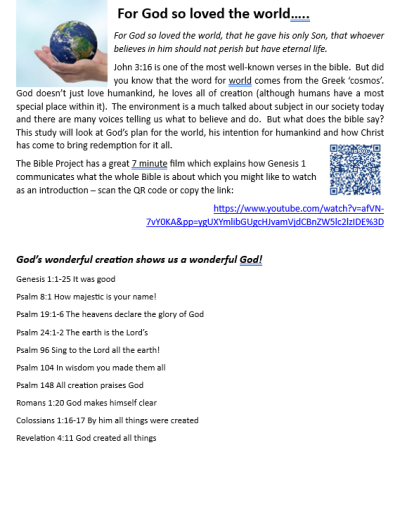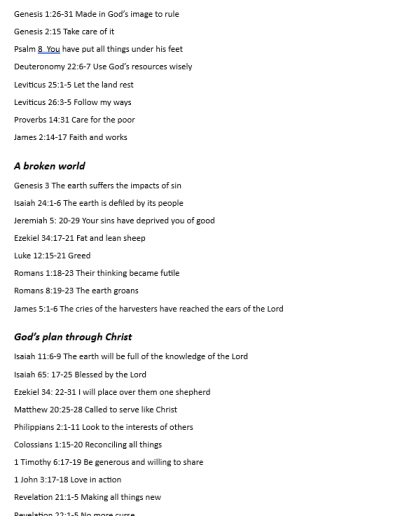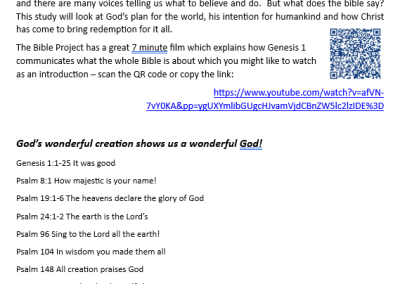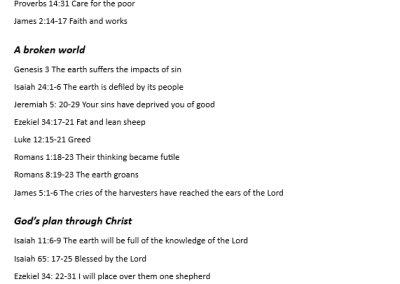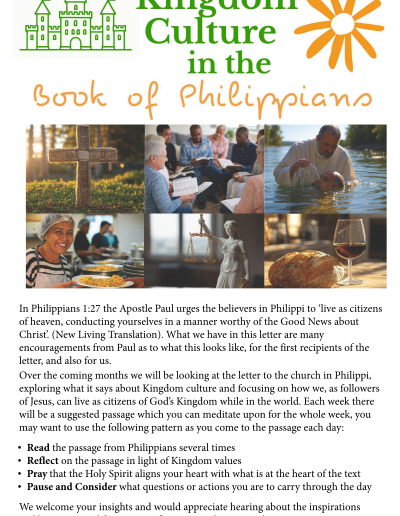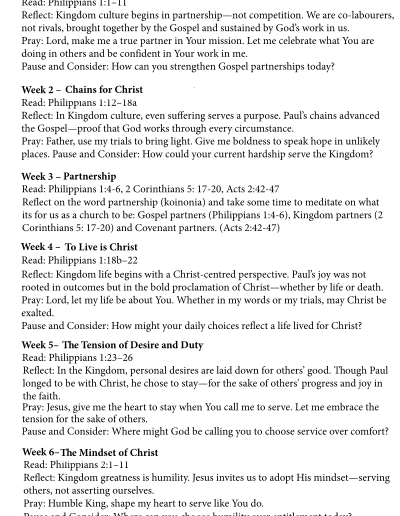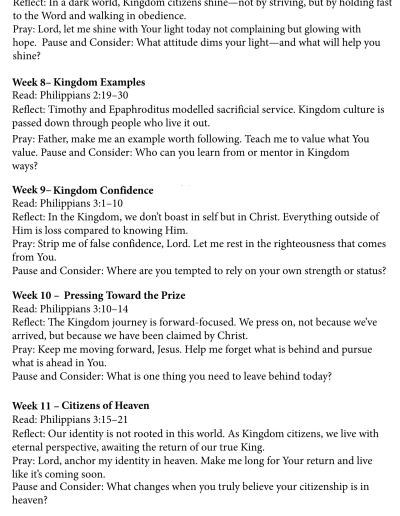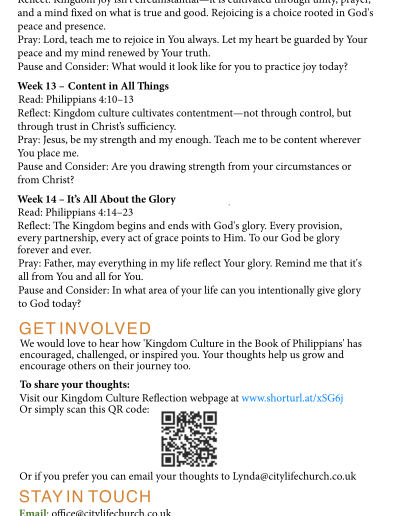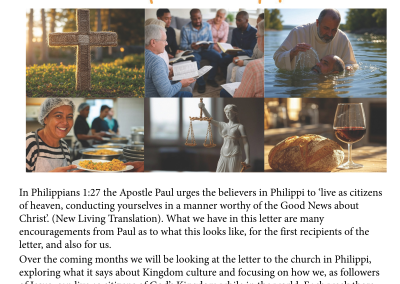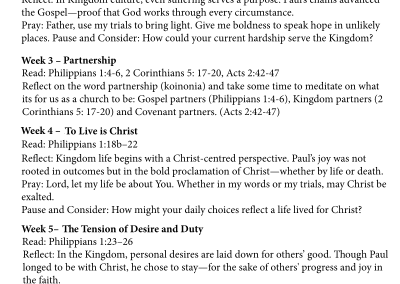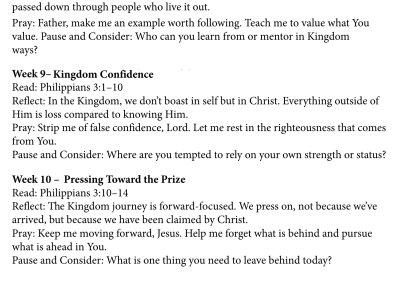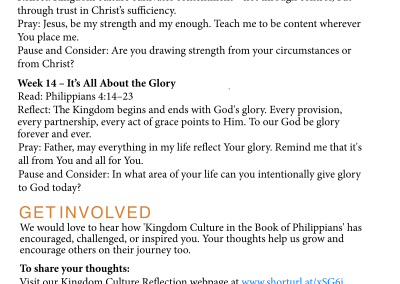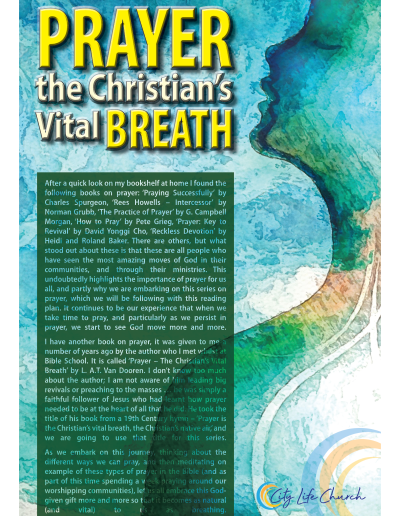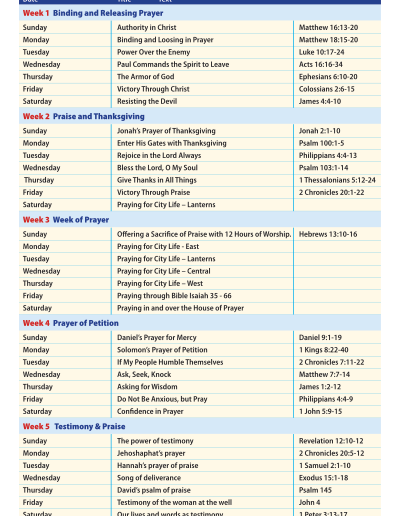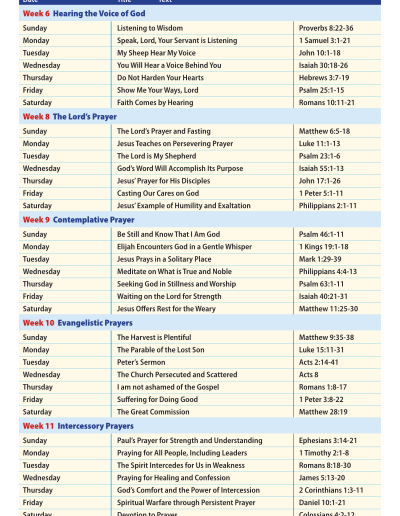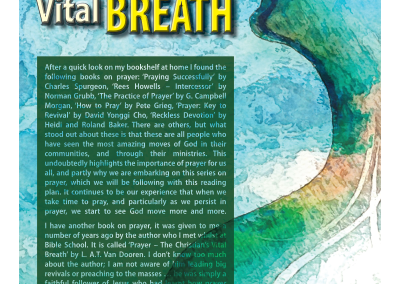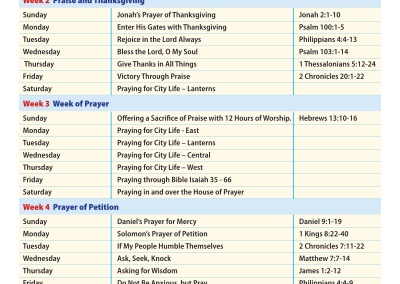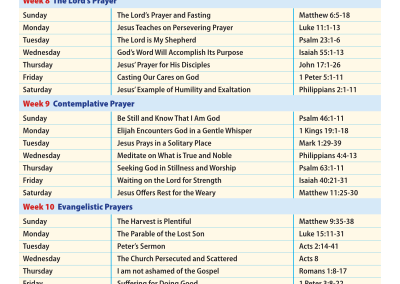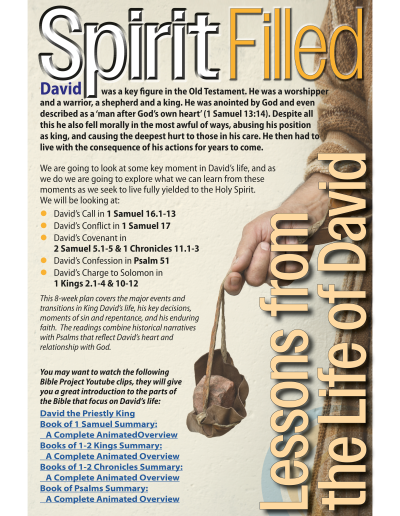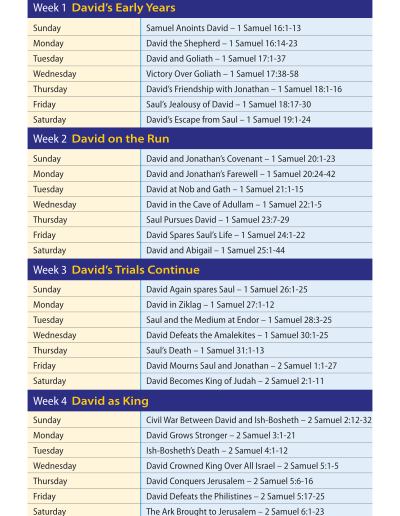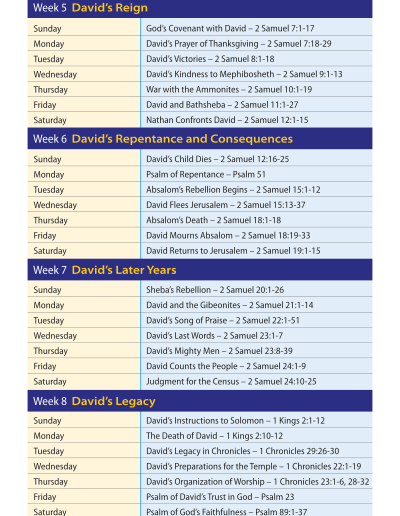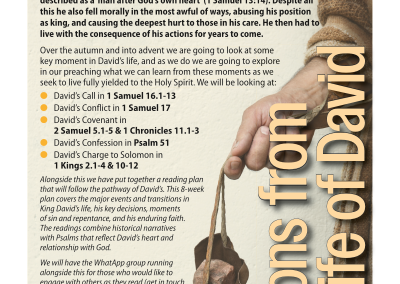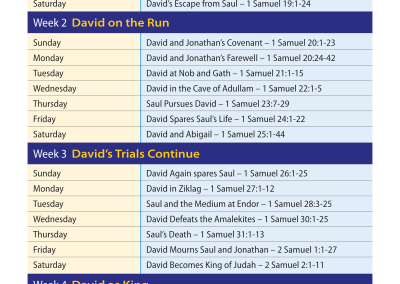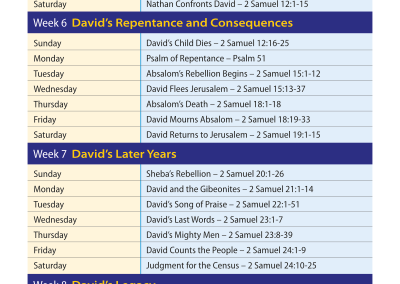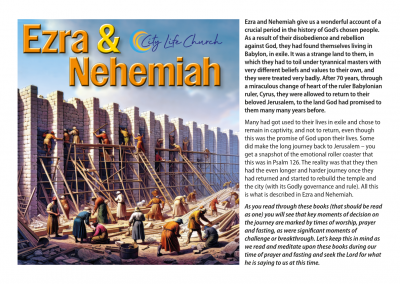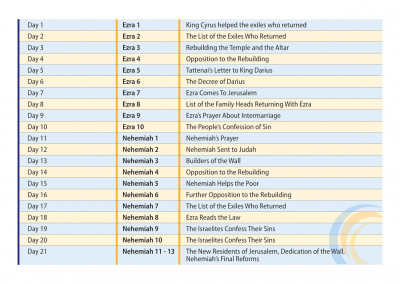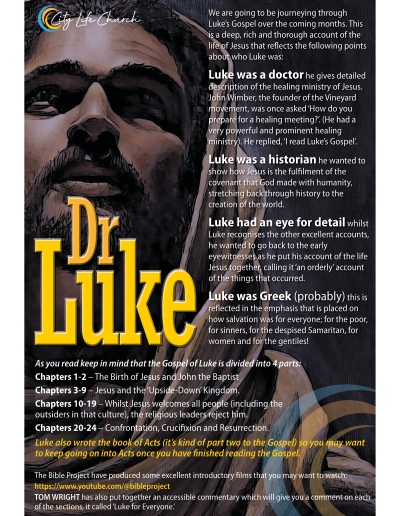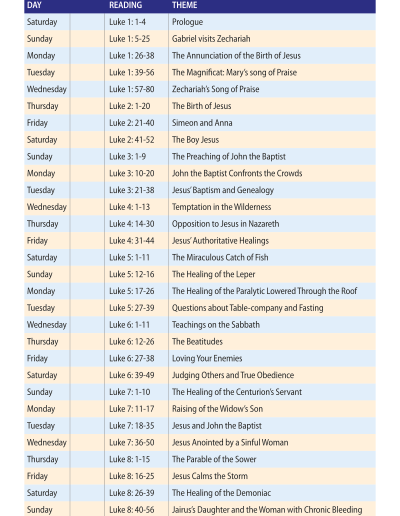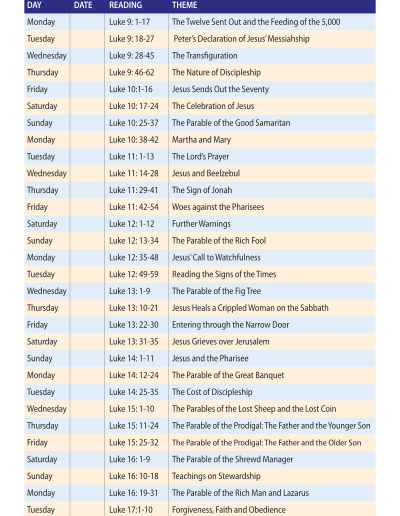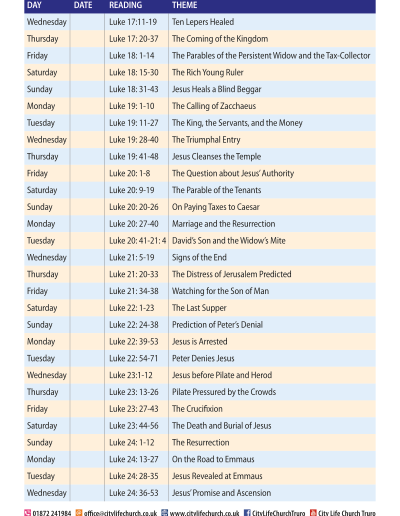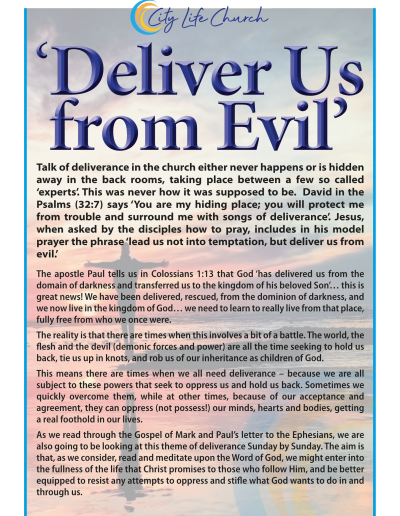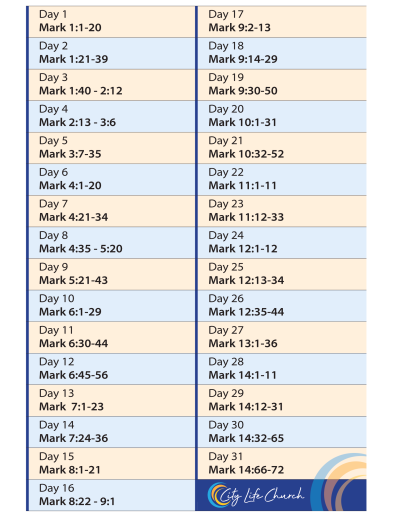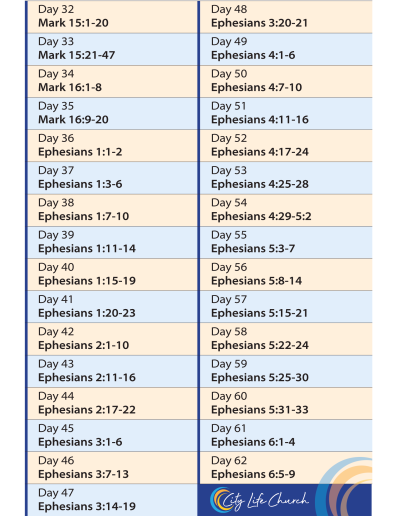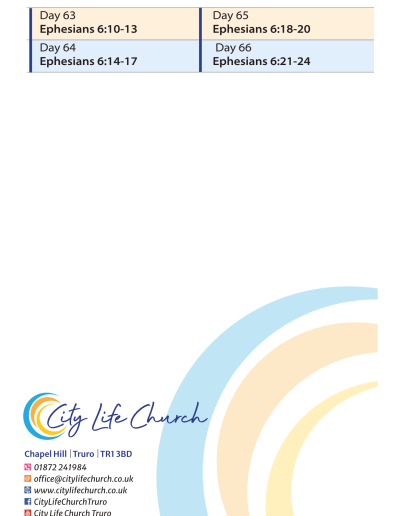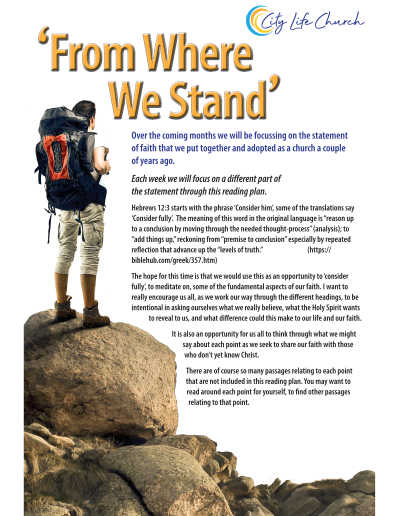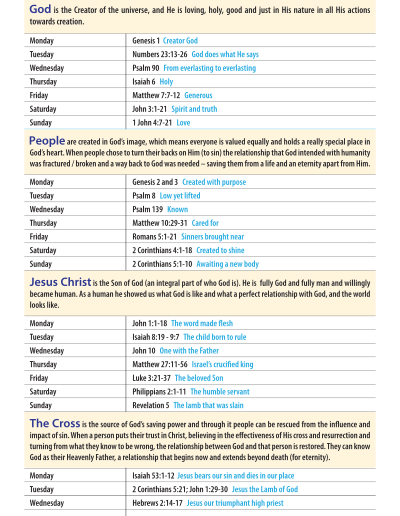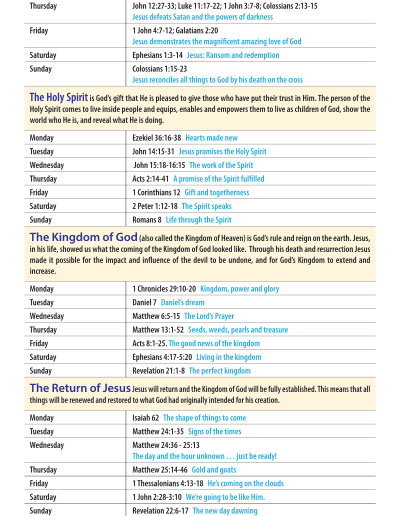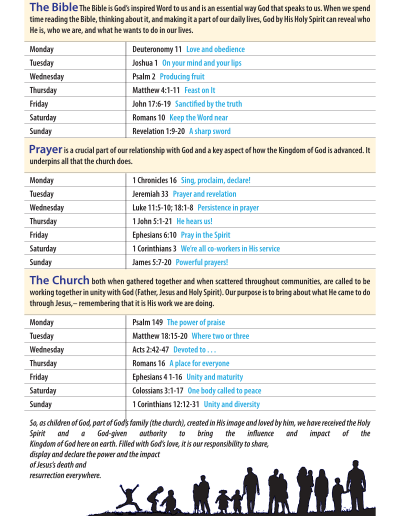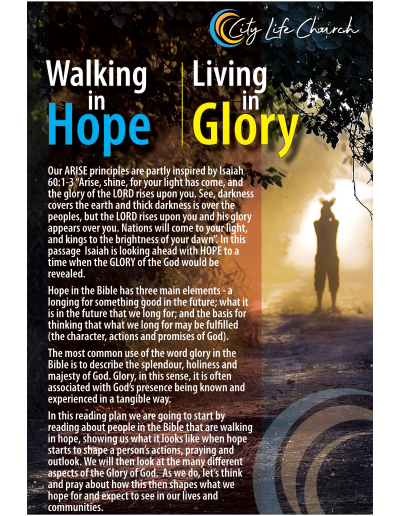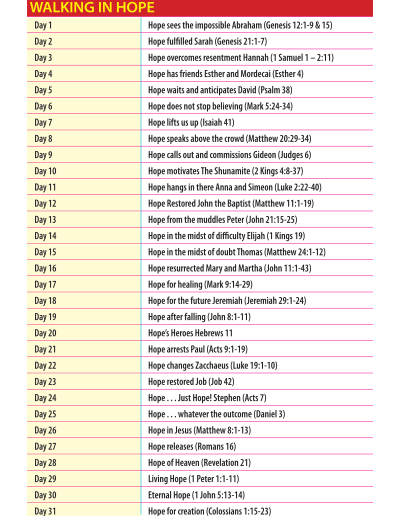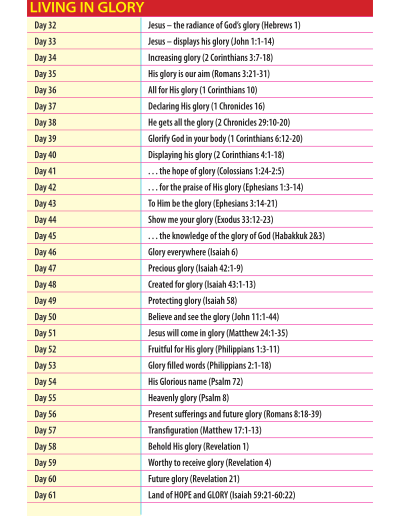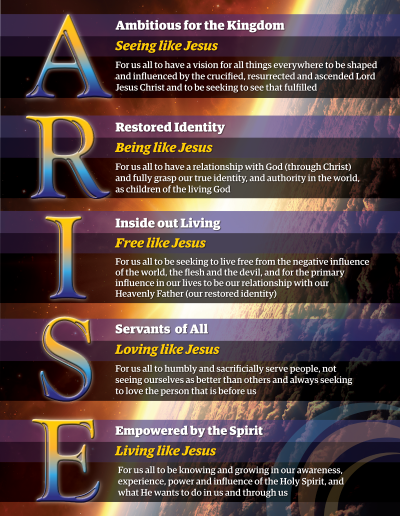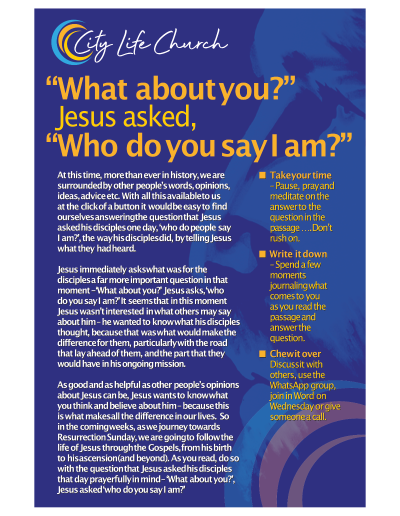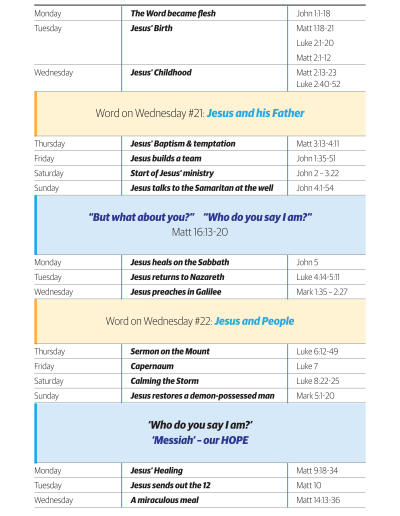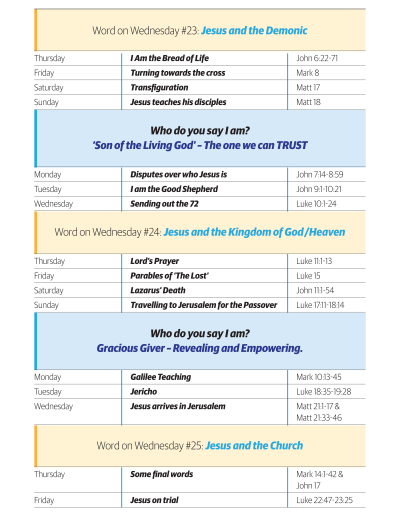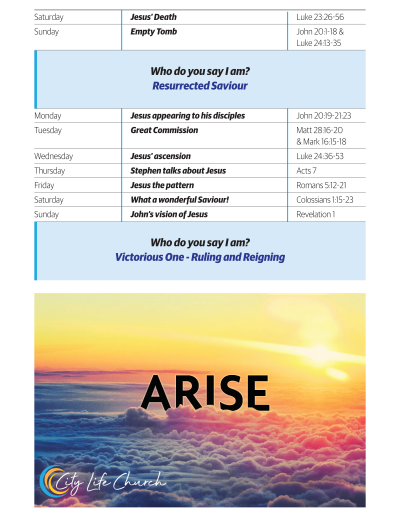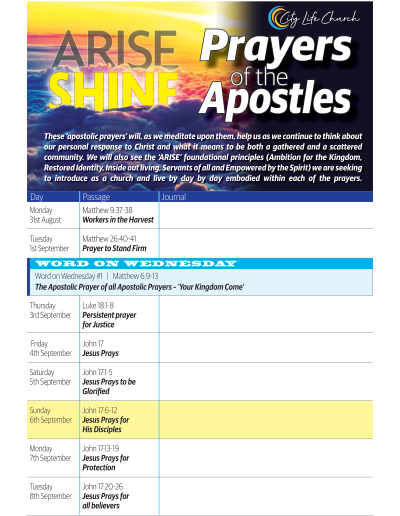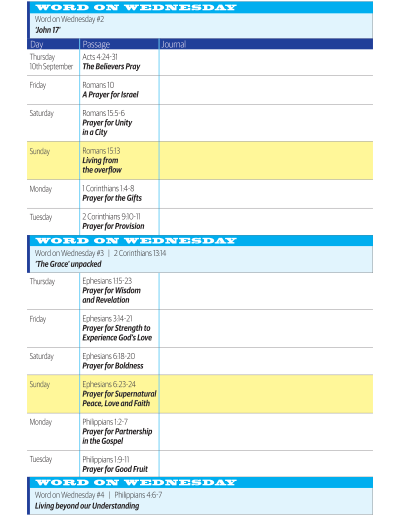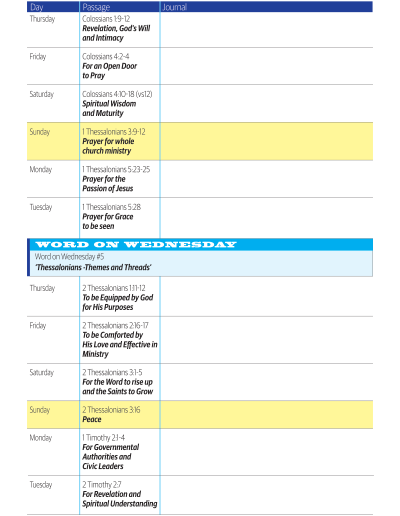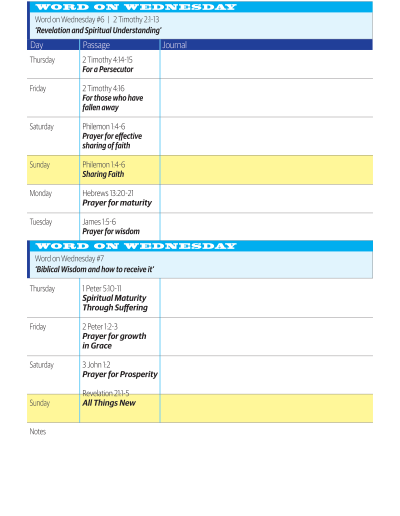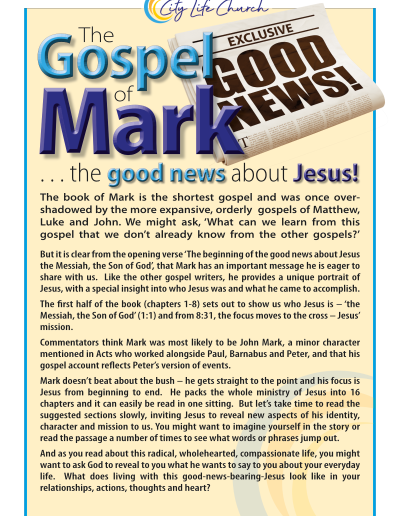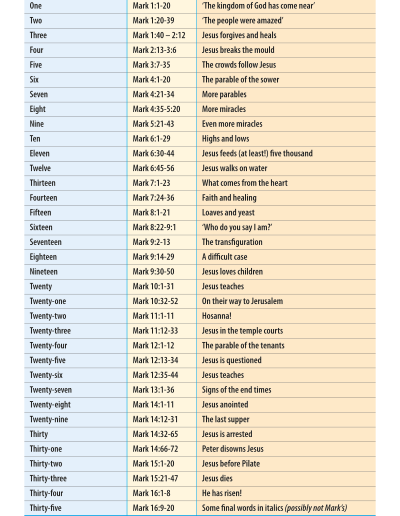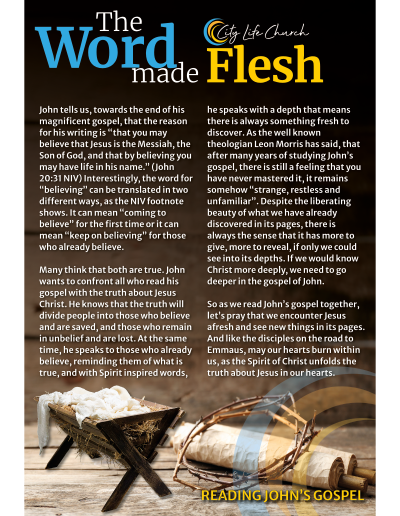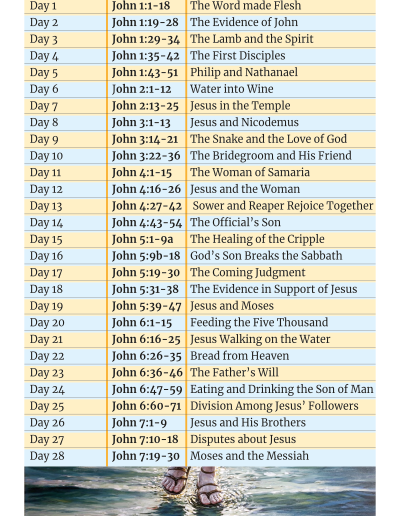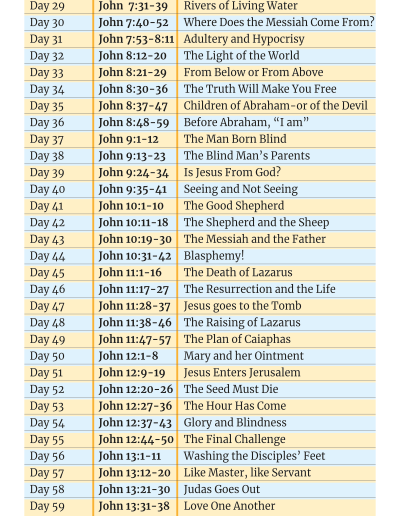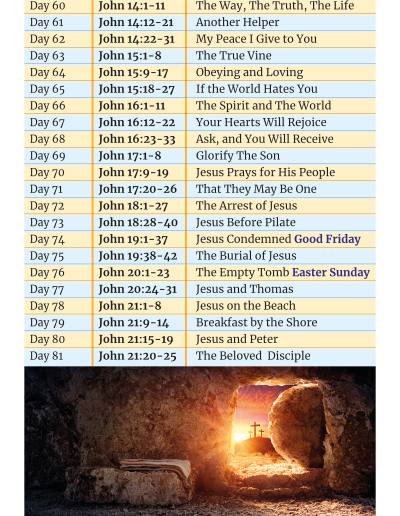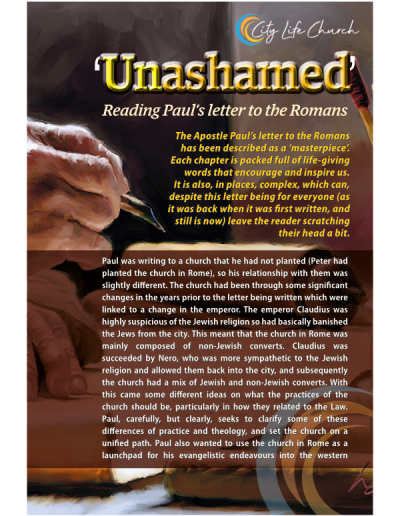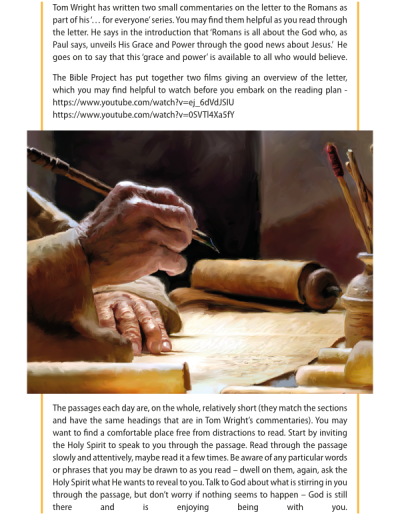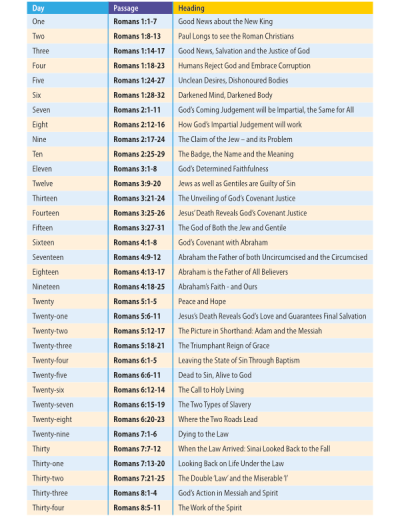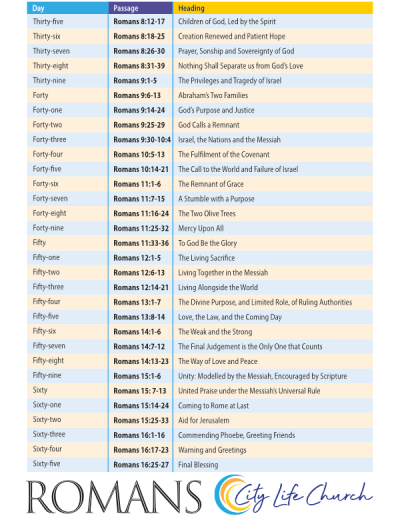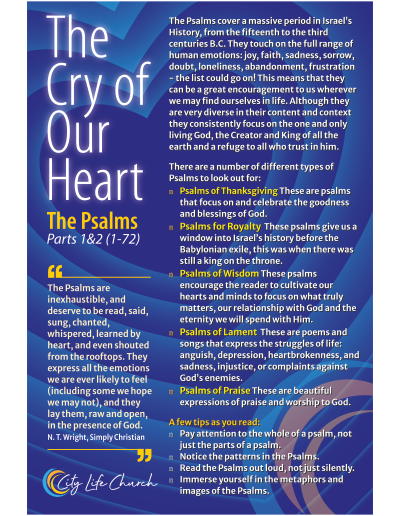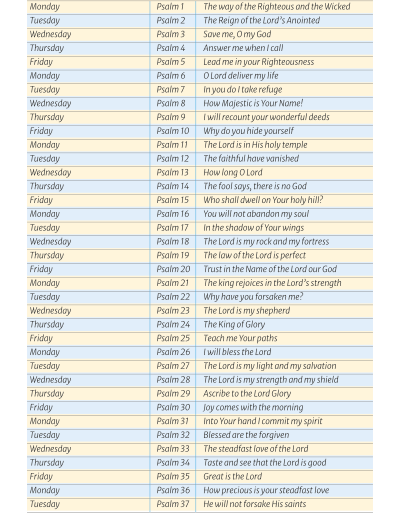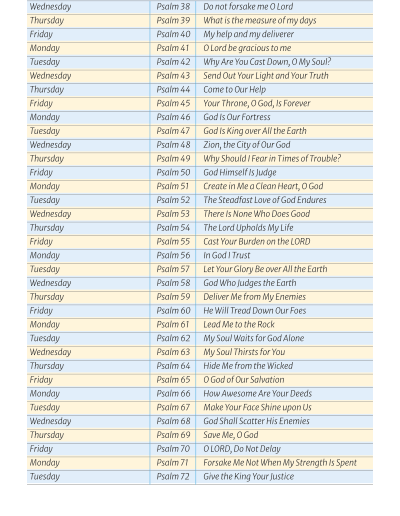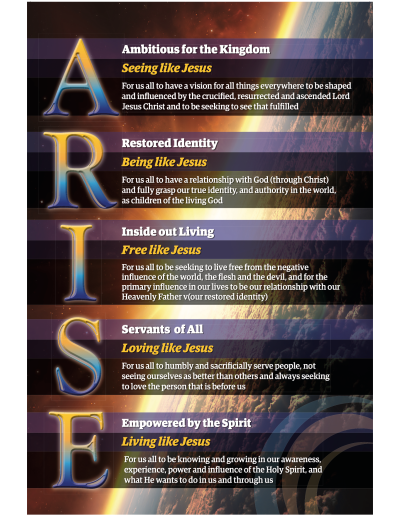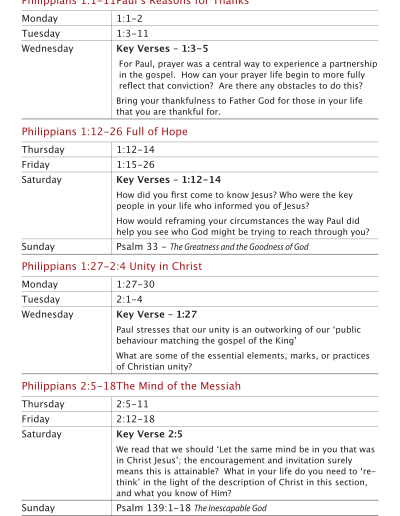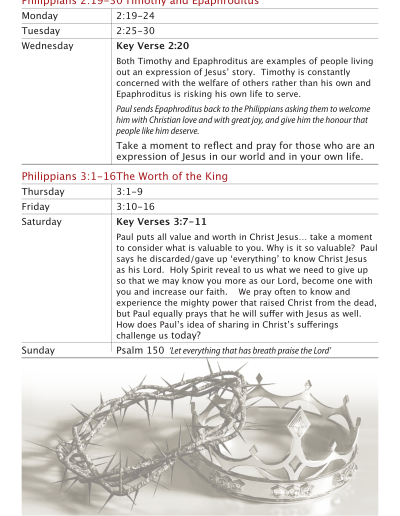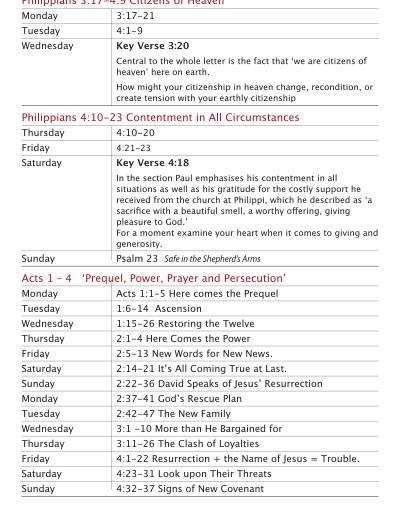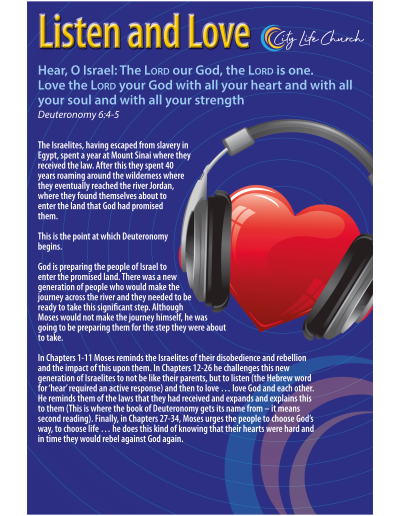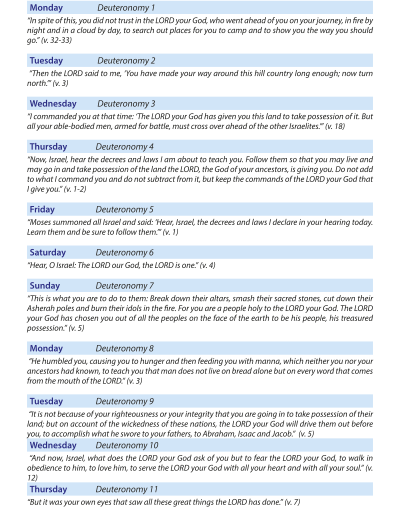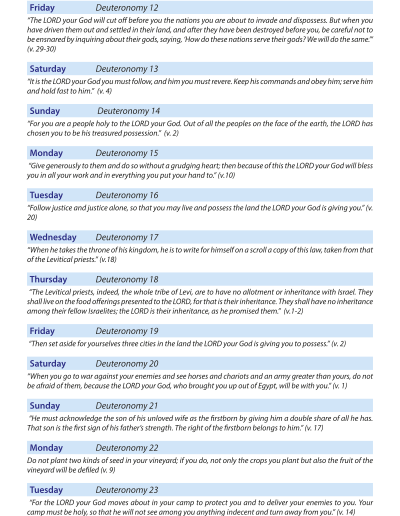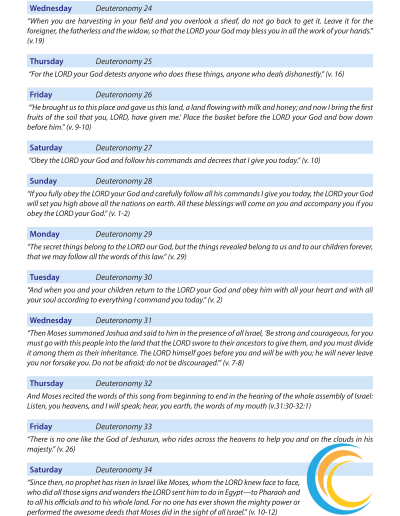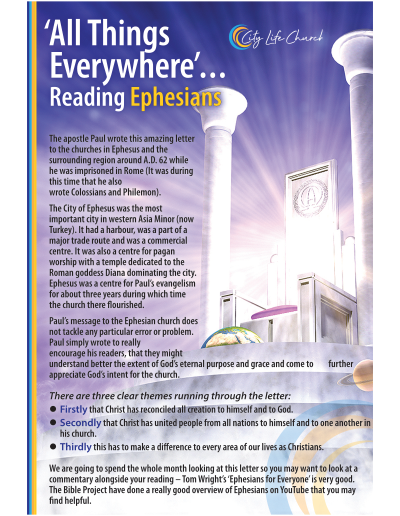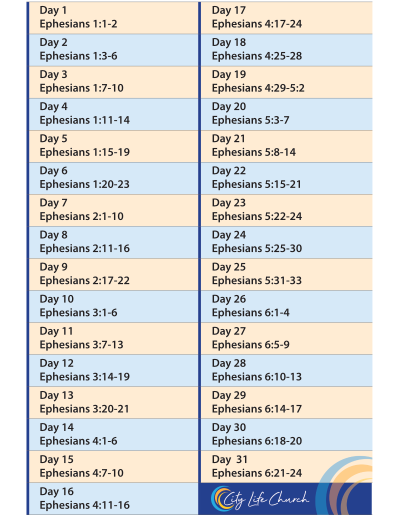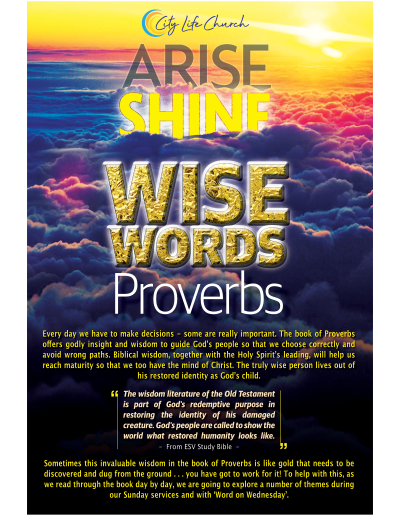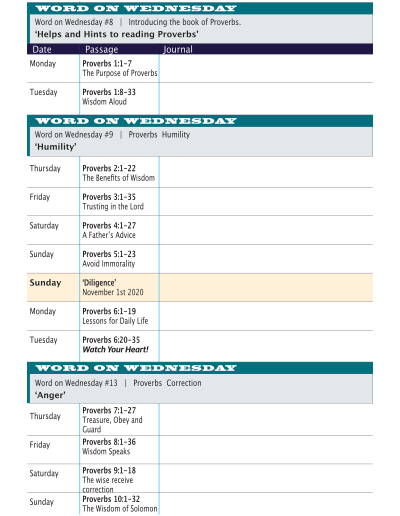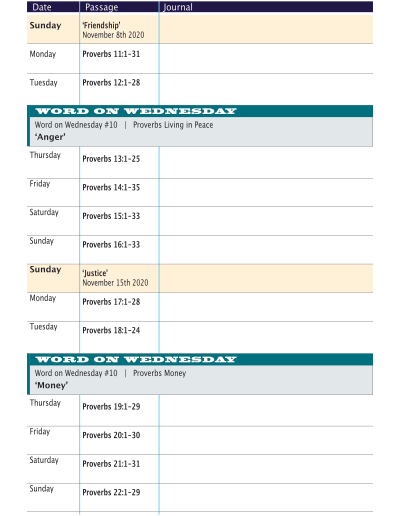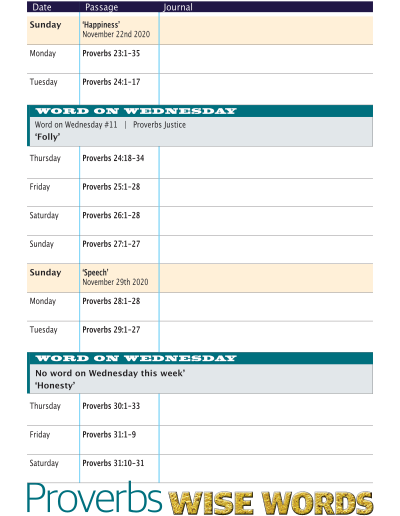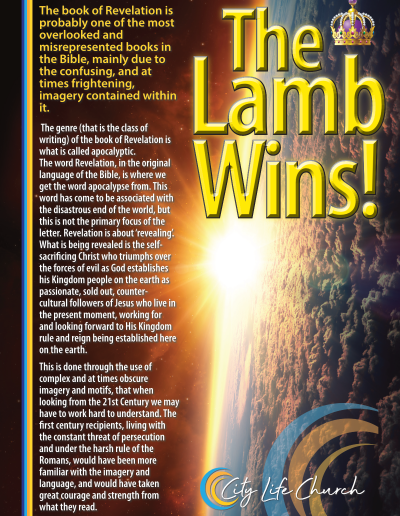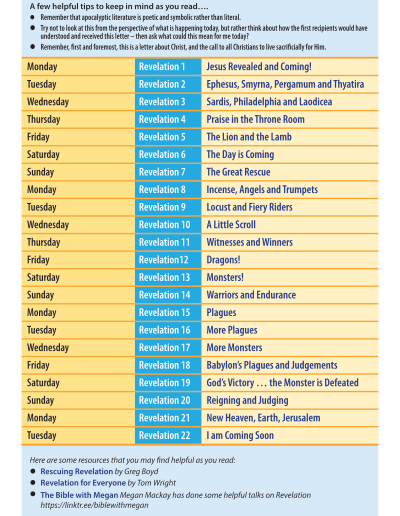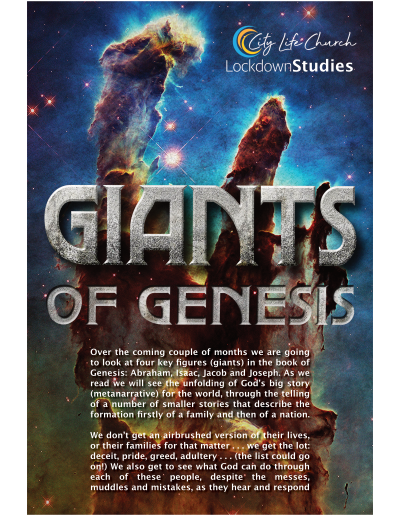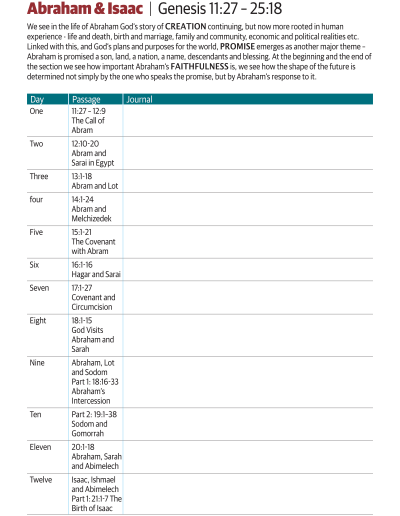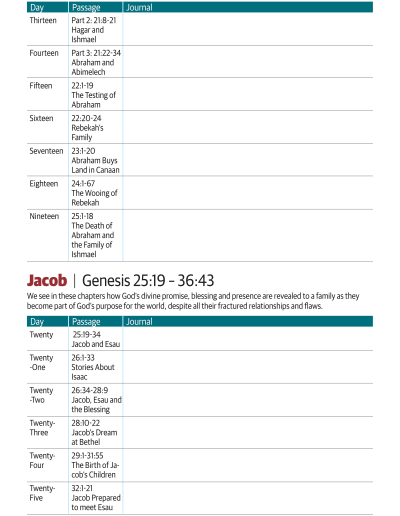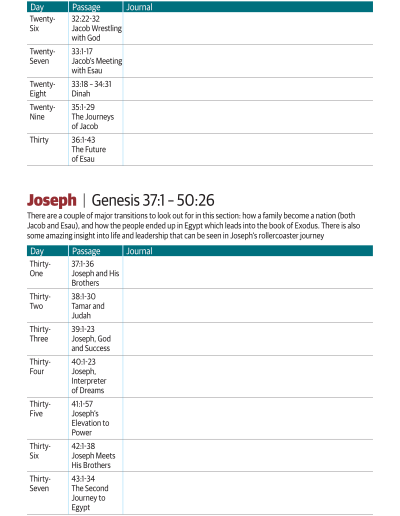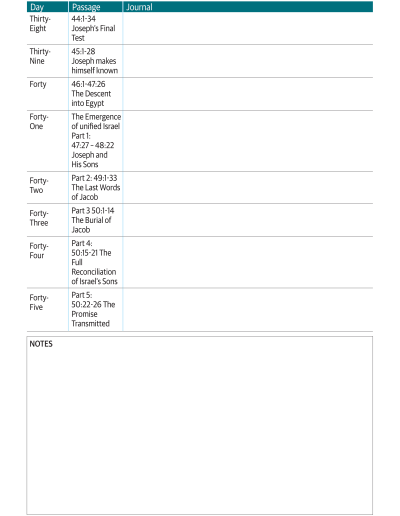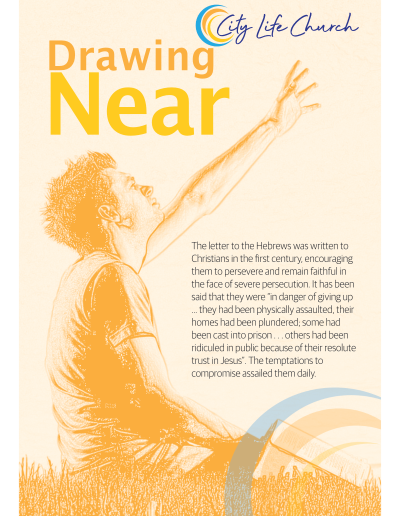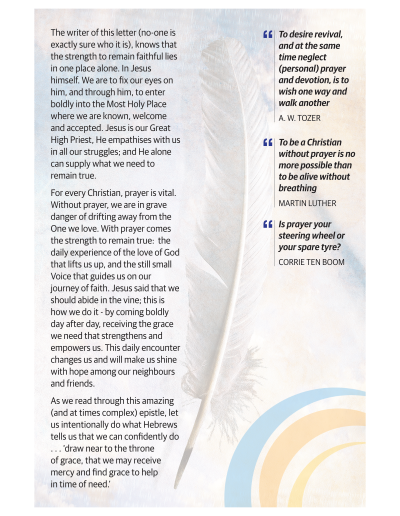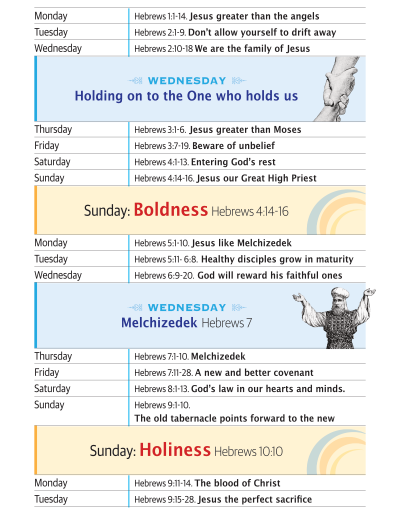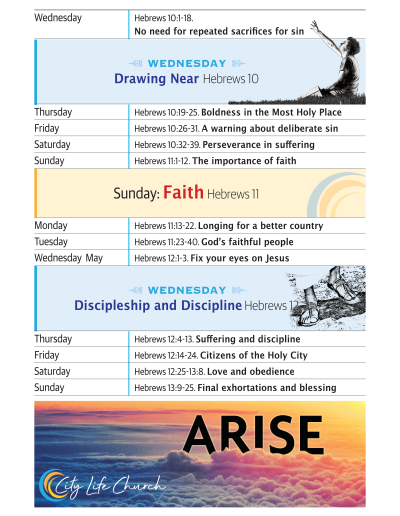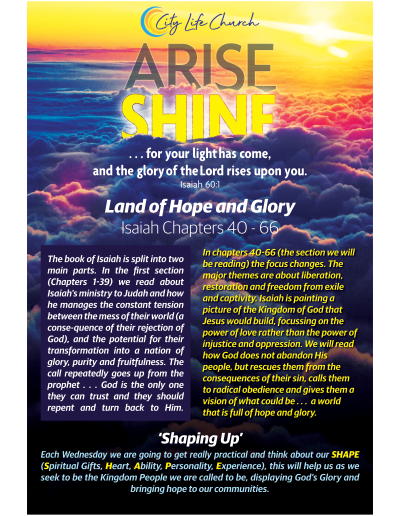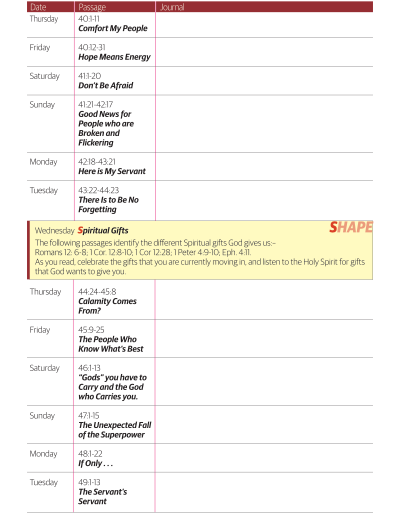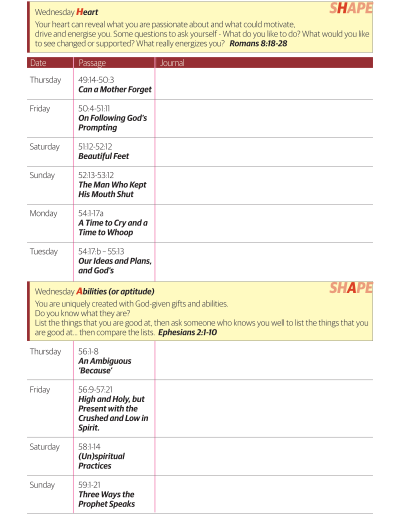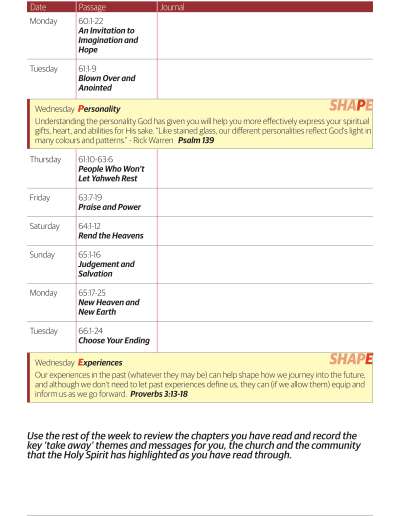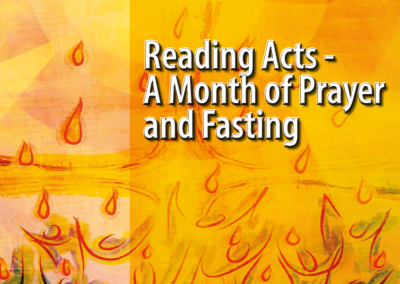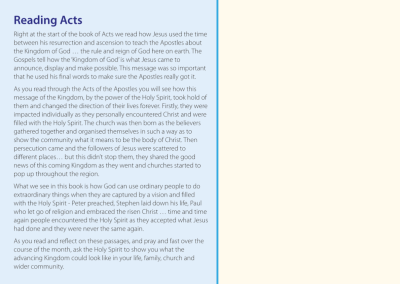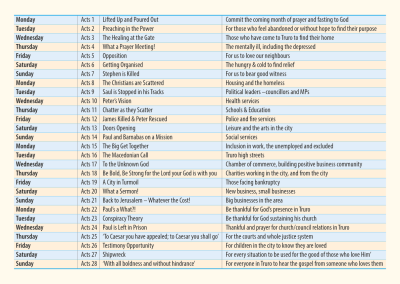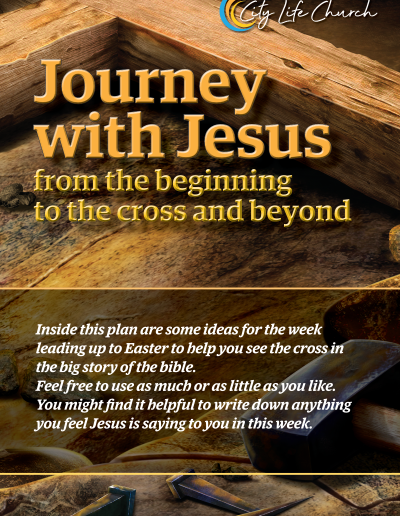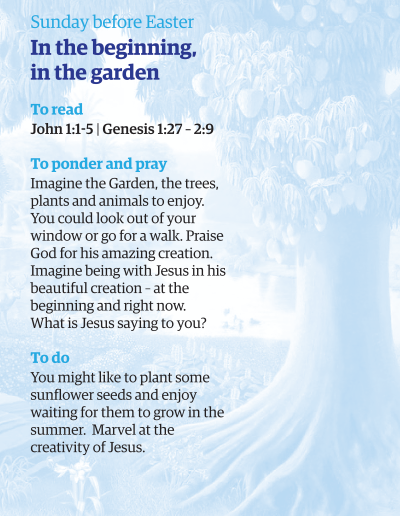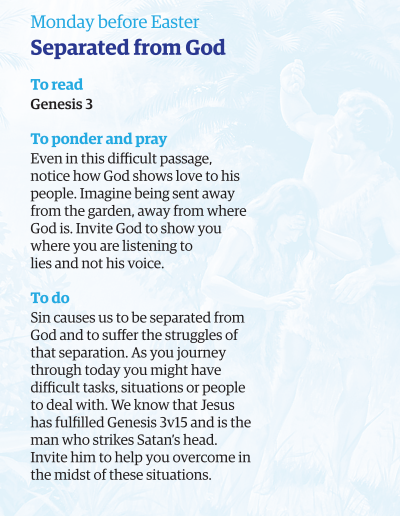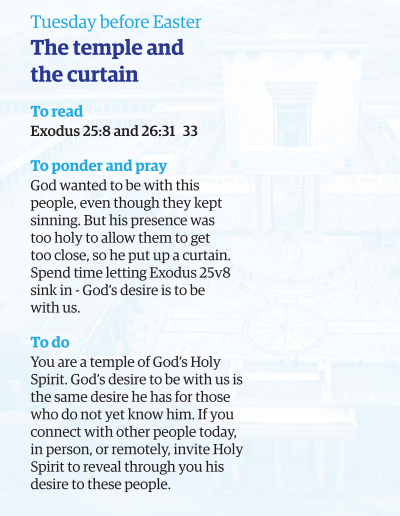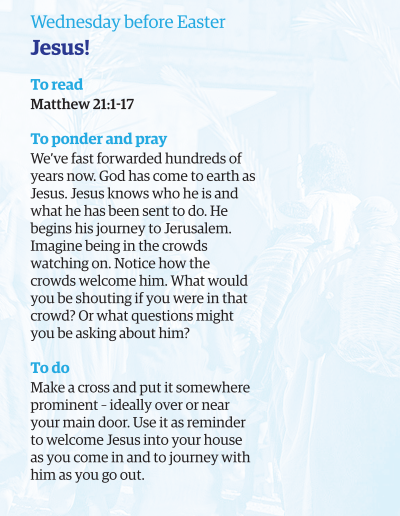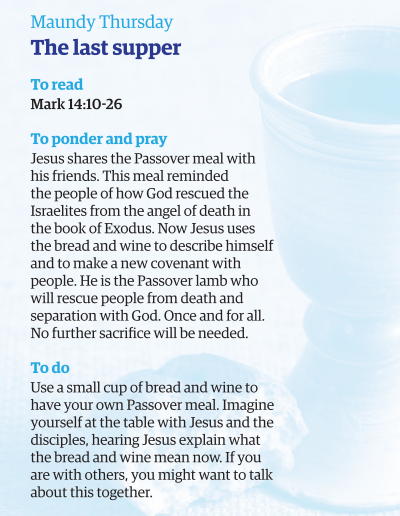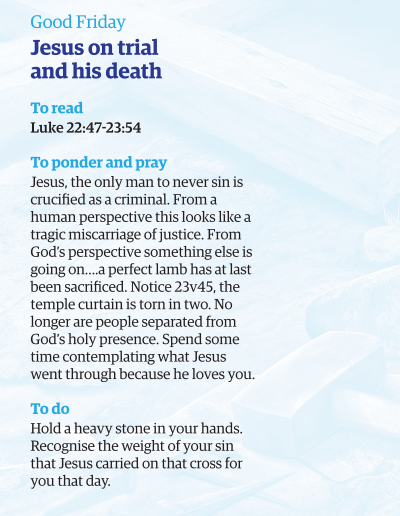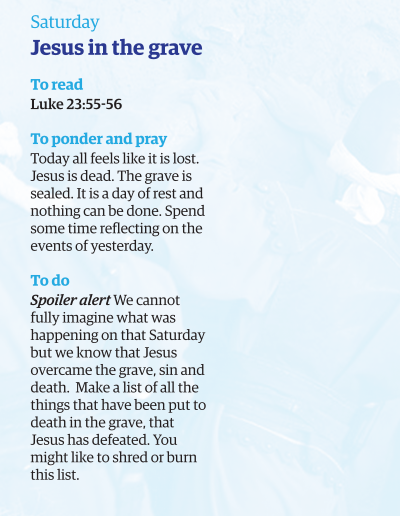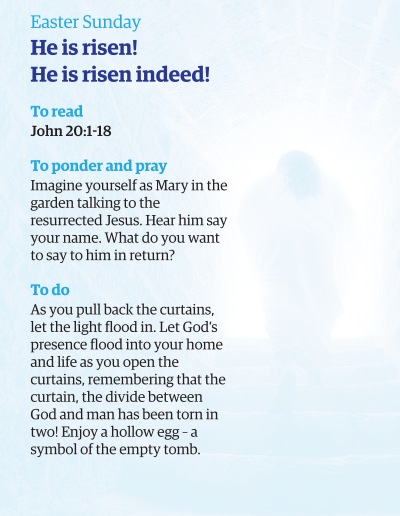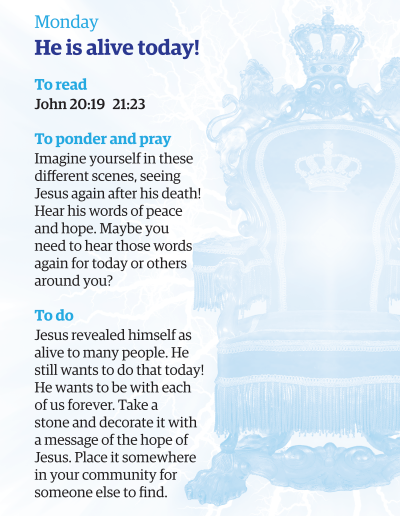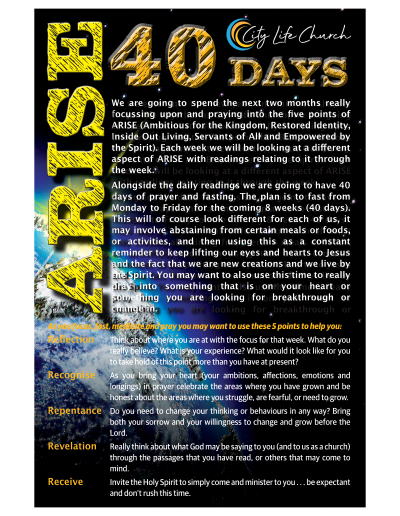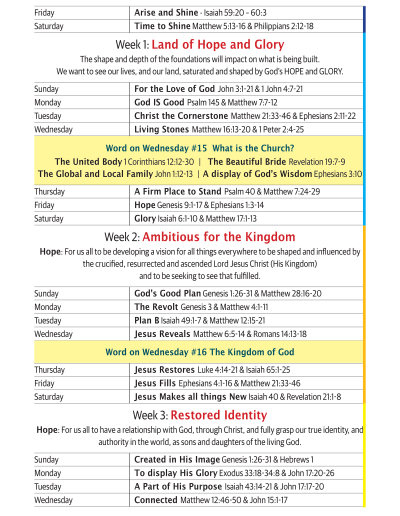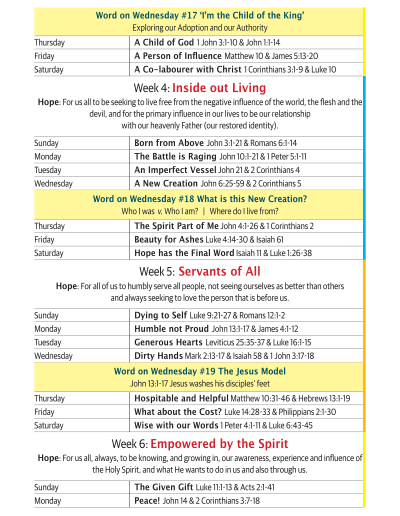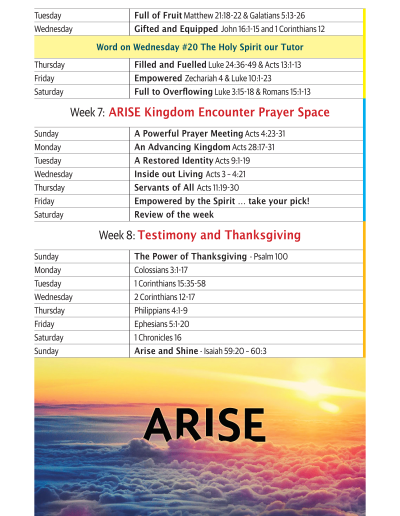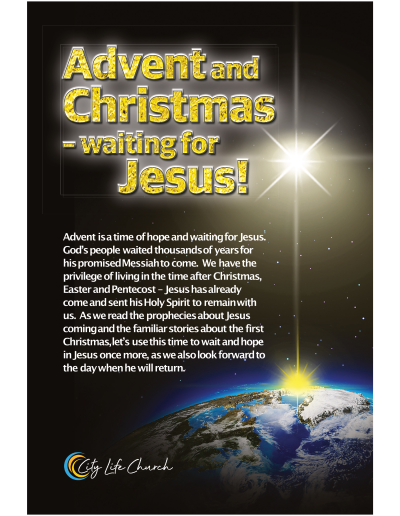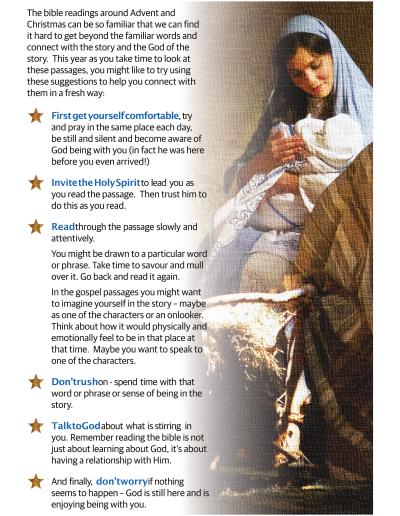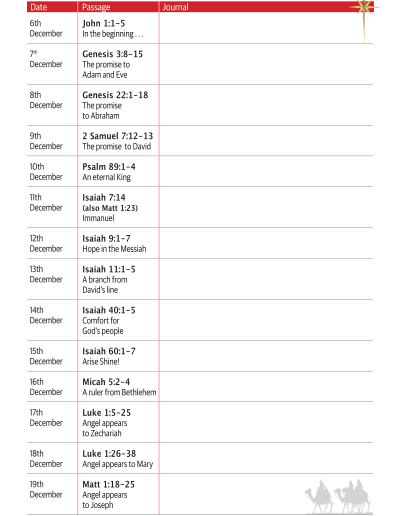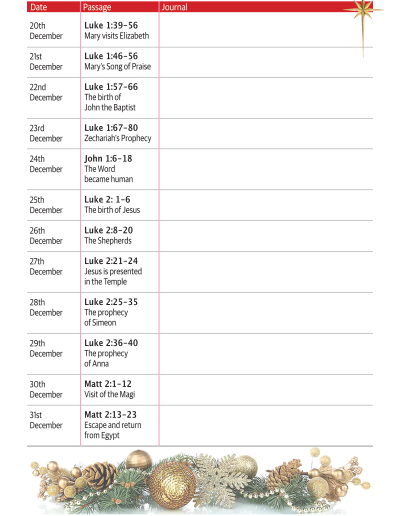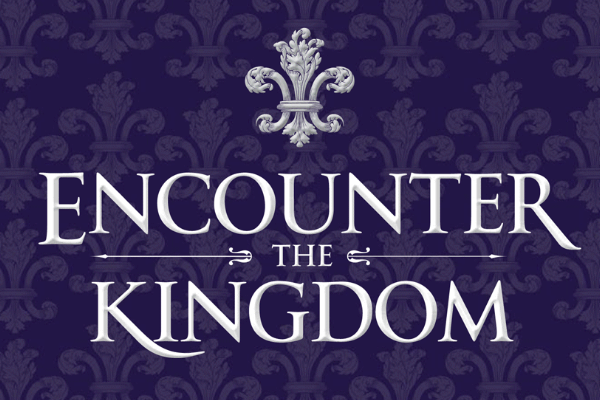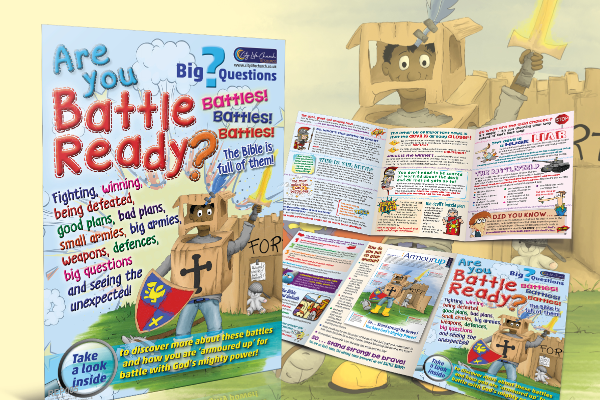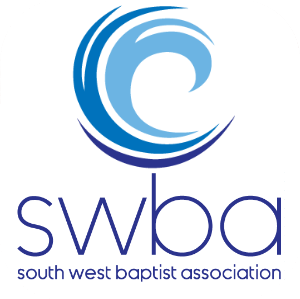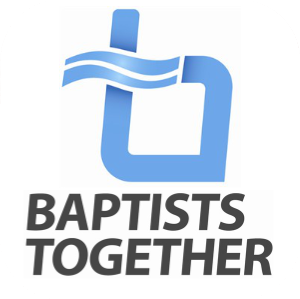Reading Plan Library
As a church, we journey through the Bible together with joint reading plans.
These reading plans are often the focus for our Sunday service, small groups and Children’s and Youth ministries.
A Resource to be shared
Rather than just let these plans gather dust we have made them into a resource that can be shared.
Feel free to download any that you would like to use personally, in small groups or even with your whole church.
We can arrange printing if required in large numbers.
Any questions please contact the church office.
Check out our other resources.
Sunday Services & Words on Wednesday
You may wish to watch some of our Sunday Services and Words on Wednesday videos that compliment and give more depth to a few of our reading plans.
Where a Word on Wednesday video is available, the corresponding #number is given.
Creation Care
For God so loved the world…..
For God so loved the world, that he gave his only Son, that whoever believes in him should not perish but have eternal life. John 3:16 is one of the most well-known verses in the bible. But did you know that the word for world comes from the Greek ‘cosmos’. God doesn’t just love humankind, he loves all of creation (although humans have a most special place within it). The environment is a much talked about subject in our society today and there are many voices telling us what to believe and do. But what does the bible say? This study will look at God’s plan for the world, his intention for humankind and how Christ
has come to bring redemption for it all.
Download PDF copy
Kingdom Culture in the book of Philippians (14 weeks)
In Philippians 1:27 the Apostle Paul urges the believers in Philippi to ‘live as citizens
of heaven, conducting yourselves in a manner worthy of the Good News about
Christ’. (New Living Translation). What we have in this letter are many
encouragements from Paul as to what this looks like, for the first recipients of the
letter, and also for us.
Over the coming months we will be looking at the letter to the church in Philippi,
exploring what it says about Kingdom culture and focusing on how we, as followers
of Jesus, can live as citizens of God’s Kingdom while in the world. Each week there
will be a suggested passage which you can meditate upon for the whole week, you
may want to use the following pattern as you come to the passage each day:
- Read the passage from Philippians several times
- Reflect on the passage in light of Kingdom values
- Pray that the Holy Spirit aligns your heart with what is at the heart of the text
- Pause and Consider what questions or actions you are to carry through the day
We welcome your insights and would appreciate hearing about the inspirations and lessons gained from your reflections on this material. For instructions on how to share your thoughts with us, please refer to the back page.
Download PDF copy
PRAYER the Christian’s Vital BREATH (77 days)
After a quick look on my bookshelf at home I found the following books on prayer: ‘Praying Successfully’ by Charles Spurgeon, ‘Rees Howells – Intercessor’ by Norman Grubb, ‘The Practice of Prayer’ by G. Campbell Morgan, ‘How to Pray’ by Pete Grieg, ‘Prayer: Key to Revival’ by David Yonggi Cho, ‘Reckless Devotion’ by Heidi and Roland Baker. There are others, but what stood out about these is that these are all people who have seen the most amazing moves of God in their communities, and through their ministries. This undoubtedly highlights the importance of prayer for us all, and partly why we are embarking on this series on prayer, which we will be following with this reading plan. It continues to be our experience that when we take time to pray, and particularly as we persist in prayer, we start to see God move more and more.
I have another book on prayer, it was given to me a number of years ago by the author who I met whilst at Bible School. It is called ‘Prayer – The Christian’s Vital Breath’ by L. A.T. Van Dooren. I don’t know too much about the author; I am not aware of him leading big revivals or preaching to the masses … he was simply a faithful follower of Jesus who had learnt how prayer needed to be at the heart of all that he did. He took the title of his book from a 19th Century hymn – ‘Prayer is the Christian’s vital breath, the Christian’s native air,’ and we are going to use that title for this series.
As we embark on this journey, thinking about the different ways we can pray, and then meditating on example of these types of prayer in the Bible (and as part of this time spending a week praying around our worshipping communities), let us all embrace this God-given gift more and more so that it becomes as natural (and vital) to us as breathing.
Download PDF copy
Spirit Filled - David (56 days)
Spirit Filled – Lessons from the Life of David
(56 days)
David was a key figure in the Old Testament. He was a worshipper and a warrior, a shepherd and a king. He was anointed by God and even described as a ‘man after God’s own heart’ (1 Samuel 13:14). Despite all this he also fell morally in the most awful of ways, abusing his position as king, and causing the deepest hurt to those in his care. He then had to live with the consequence of his actions for years to come.
We have put together a reading plan that will follow the pathway of David’s.
This 8-week plan covers the major events and transitions in King David’s life, his key decisions, moments of sin and repentance, and his enduring faith. The readings combine historical narratives with Psalms that reflect David’s heart and relationship with God.
We will be looking at:
- David’s Call in 1 Samuel 16.1-13
- David’s Conflict in 1 Samuel 17
- David’s Covenant in 2 Samuel 5.1-5 & 1 Chronicles 11.1-3
- David’s Confession in Psalm 51
- David’s Charge to Solomon in 1 Kings 2.1-4 & 10-12
You may want to watch the following Bible Project Youtube clips:
- David the Priestly King
- Book of 1 Samuel Summary: A Complete Animated Overview
- Books of 1-2 Kings Summary: A Complete Animated Overview
- Books of 1-2 Chronicles Summary: A Complete Animated Overview
- Book of Psalms Summary: A Complete Animated Overview
They will give you a great introduction to the parts of the Bible that focus on David’s life.
Download PDF copy
Ezra & Nehemiah (21 days)
‘Ezra & Nehemiah’
(21 days)
Ezra and Nehemiah give us a wonderful account of a crucial period in the history of God’s chosen people. As a result of their disobedience and rebellion against God, they had found themselves living in Babylon, in exile. It was a strange land to them, in which they had to toil under tyrannical masters with very different beliefs and values to their own, and they were treated very badly. After 70 years, through a miraculous change of heart of the ruler Babylonian ruler, Cyrus, they were allowed to return to their beloved Jerusalem, to the land God had promised to them many many years before.
Many had got used to their lives in exile and chose to remain in captivity, and not to return, even though this was the promise of God upon their lives. Some did make the long journey back to Jerusalem – you get a snapshot of the emotional roller coaster that this was in Psalm 126. The reality was that they then had the even longer and harder journey once they had returned and started to rebuild the temple and the city (with its Godly governance and rule). All this is what is described in Ezra and Nehemiah.
As you read through these books (that should be read as one) you will see that key moments of decision on the journey are marked by times of worship, prayer and fasting, as were significant moments of challenge or breakthrough. Let’s keep this in mind as we read and meditate upon these books during our time of prayer and fasting and seek the Lord for what he is saying to us at this time.
Download PDF copy
'Dr Luke' (88 days)
‘Dr Luke’
(88 days)
We are going to be journeying through Luke’s Gospel over the coming months. This is a deep, rich and thorough account of the life of Jesus that reflects the following points about who Luke was:
Luke was a doctor: he gives detailed description of the healing ministry of Jesus. John Wimber, the founder of the Vineyard movement, was once asked ‘How do you prepare for a healing meeting?’. (He had a very powerful and prominent healing ministry). He replied, ‘I read Luke’s Gospel’.
Luke was a historian: he wanted to show how Jesus is the fulfilment of the covenant that God made with humanity, stretching back through history to the creation of the world.
Luke had an eye for detail: whilst Luke recognises the other excellent accounts, he wanted to go back to the early eyewitnesses as he put his account of the life Jesus together, calling it ‘an orderly’ account of the things that occurred.
Luke was Greek (probably): this is reflected in the emphasis that is placed on how salvation was for everyone; for the poor, for sinners, for the despised Samaritan, for women and for the gentiles!
As you read keep in mind that the Gospel of Luke is divided into 4 parts:
Chapters 1-2 The Birth of Jesus and John the Baptist
Chapters 3-9 Jesus and the ‘Upside-Down’ Kingdom.
Chapters 10-19 Whilst Jesus welcomes all people (including the outsiders in that culture), the religious leaders reject him.
Chapters 20-24 Confrontation, Crucifixion and Resurrection.
Luke also wrote the book of Acts (it’s kind of part two to the Gospel) so you may want to keep going on into Acts once you have finished reading the Gospel.
The Bible Project have produced some excellent introductory films that you may want to watch.
Luke Part 1
https://youtu.be/XIb_dCIxzr0?si=QtgUFWl01CYlab6CLuke
Luke Part 2
https://youtu.be/26z_KhwNdD8?si=f8yk44ruqQVaKp5I
Tom Wright has also put together an accessible commentary which will give you a comment on each of the sections, it called ‘Luke for Everyone.’
Download PDF copy
'Deliver us from evil' (66 days)
‘Deliver us from evil’
(66 days)
Talk of deliverance in the church either never happens or is hidden away in the back rooms, taking place between a few so called ‘experts’. This was never how it was supposed to be. David in the Psalms (32:7) says ‘You are my hiding place; you will protect me from trouble and surround me with songs of deliverance’. Jesus, when asked by the disciples how to pray, includes in his model prayer the phrase ‘lead us not into temptation, but deliver us from evil.’
The apostle Paul tells us in Colossians 1:13 that God ‘has delivered us from the domain of darkness and transferred us to the kingdom of his beloved Son’…this is great news!We have been delivered, rescued, from the dominion of darkness, and we now live in the kingdom of God…we need to learn to really live from that place, fully free from who we once were.
The reality is that there are times when this involves a bit of a battle. The world, the flesh and the devil (demonic forces and power) are all the time seeking to hold us back, tie us up in knots, and rob us of our inheritance as children of God.
This means there are times when we all need deliverance – because we are all subject to these powers that seek to oppress us and hold us back. Sometimes we quickly overcome them, while at other times, because of our acceptance and agreement, they can oppress (not possess!) our minds, hearts and bodies, getting a real foothold in our lives.
As we read through the Gospel of Mark and Paul’s letter to the Ephesians, we are also going to be looking at this theme of deliverance Sunday by Sunday. The aim is that, as we consider, read and meditate upon theWord of God, we might enter into the fullness of the life that Christ promises to those who follow Him, and be better equipped to resist any attempts to oppress and stifle what God wants to do in and through us.
Download PDF copy
From where we stand! (70 days)
From where we stand!
In this plan we will be focussing on the statement of faith that we put together and adopted as a church a couple of years ago.
(70 days)
Each week we will focus on a different part of the statement through this reading plan.
Hebrews 12:3 starts with the phrase ‘Consider him’, some of the translations say ‘Consider fully’. The meaning of this word in the original language is “reason up to a conclusion by moving through the needed thought-process” (analysis); to “add things up,” reckoning from“premise to conclusion” especially by repeated reflection that advance up the “levels of truth.”
The hope for this time is that we would use this as an opportunity to ‘consider fully’, to meditate on, some of the fundamental aspects of our faith. I want to really encourage us all, as we work our way through the different headings, to be intentional in asking ourselves what we really believe, what the Holy Spirit wants to reveal to us, and what difference could this make to our life and our faith.
It is also an opportunity for us all to think through what we might say about each point as we seek to share our faith with those who don’t yet know Christ.
There are of course so many passages relating to each point that are not included in this reading plan. You may want to read around each point for yourself, to find other passages relating to that point.
God is the Creator of the universe, and He is loving, holy, good and just in His nature in all His actions towards creation.
People are created in God’s image, which means everyone is valued equally and holds a really special place in God’s heart.When people chose to turn their backs on Him (to sin) the relationship that God intended with humanity was fractured / broken and away back to God was needed – saving them from a life and an eternity apart from Him.
Jesus Christ is the Son of God (an integral part of who God is). He is fully God and fully man and willingly became human. As a human he showed us what God is like and what a perfect relationship with God, and the world looks like.
The Cross is the source of God’s saving power and through it people can be rescued from the influence and impact of sin.When a person puts their trust in Christ, believing in the effectiveness of His cross and resurrection and turning from what they know to be wrong, the relationship between God and that person is restored. They can know God as their Heavenly Father, a relationship that begins now and extends beyond death (for eternity).
The Holy Spirit is God’s gift that He is pleased to give those who have put their trust in Him. The person of the Holy Spirit comes to live inside people and equips, enables and empowers them to live as children of God, show the world who He is, and reveal what He is doing.
The Kingdom of God (also called the Kingdom of Heaven) is God’s rule and reign on the earth. Jesus, in his life, showed us what the coming of the Kingdom of God looked like. Through his death and resurrection Jesus made it possible for the impact and influence of the devil to be undone, and for God’s Kingdom to extend and increase.
The Return of Jesus Jesus will return and the Kingdom of God will be fully established. This means that all things will be renewed and restored to what God had originally intended for his creation.
The Bible is God’s inspired Word to us and is an essential way God that speaks to us. When we spend time reading the Bible, thinking about it, and making it a part of our daily lives, God by His Holy Spirit can reveal who He is, who we are, and what he wants to do in our lives.
Prayer is a crucial part of our relationship with God and a key aspect of how the Kingdom of God is advanced. It underpins all that the church does.
The Church both when gathered together and when scattered throughout communities, are called to be working together in unity with God (Father, Jesus and Holy Spirit). Our purpose is to bring about what He came to do through Jesus,– remembering that it is His work we are doing.
Download PDF copy
Walking in Hope Living in Glory (61 Days)
Walking in Hope Living in Glory
(61 days)
Our ARISE principles are partly inspired by Isaiah 60:1-3 “Arise, shine, for your light has come, and the glory of the LORD rises upon you. See, darkness covers the earth and thick darkness is over the peoples, but the LORD rises upon you and his glory appears over you. Nations will come to your light, and kings to the brightness of your dawn”. In this passage Isaiah is looking ahead with HOPE to a time when the GLORY of the God would be revealed.
Hope in the Bible has three main elements – a longing for something good in the future; what it is in the future that we long for; and the basis for thinking that what we long for may be fulfilled (the character, actions and promises of God).
The most common use of the word glory in the Bible is to describe the splendour, holiness and majesty of God. Glory, in this sense, it is often associated with God’s presence being known and experienced in a tangible way.
In this reading plan we are going to start by reading about people in the Bible that are walking in hope, showing us what it looks like when hope starts to shape a person’s actions, praying and outlook. We will then look at the many different aspects of the Glory of God. As we do, let’s think and pray about how this then shapes what we hope for and expect to see in our lives and communities.
Download PDF copy
Who do you say I am? (42 Days)
“What about you?” Jesus asked,
Who do you say I am?
(42 days)
At this time, more than ever in history, we are surrounded by other people’s words, opinions, ideas, advice etc. With all this available to us at the click of a button it would be easy to find ourselves answering the question that Jesus asked his disciples one day, ‘who do people say I am?’, the way his disciples did, by telling Jesus what they had heard.
Jesus immediately asks what was for the disciples a far more important question in that moment – ‘What about you?’ Jesus asks, ‘who do you say I am?’ It seems that in this moment Jesus wasn’t interested in what others may say about him – he wanted to know what his disciples thought, because that was what would make the difference for them, particularly with the road that lay ahead of them, and the part that they would have in his ongoing mission.
As good and as helpful as other people’s opinions about Jesus can be, Jesus wants to know what you think and believe about him – because this is what makes all the difference in our lives. So in the coming weeks, we are going to follow the life of Jesus through the Gospels, from his birth to his ascension (and beyond). As you read, do so with the question that Jesus asked his disciples that day prayerfully in mind – ‘What about you?’, Jesus asked ‘who do you say I am?’
Take your time – Pause, pray and meditate on the answer to the question in the passage …. Don’t rush on.
Write it down – Spend a few moments journaling what comes to you as you read the passage and answer the question.
Chew it over – Discuss it with others, use the WhatsApp group, join in Word on Wednesday or give someone a call.
Download PDF copy
Prayers of the Apostles (49 Days)
ARISE Shine
Prayer of the Apostles
(49 days)
These ‘apostolic prayers’ will, as we meditate upon them, help us as we continue to think about our personal response to Christ and what it means to be both a gathered and a scattered community. We will also see the ‘ARISE’ foundational principles (Ambition for the Kingdom, Restored Identity, Inside out living, Servants of all and Empowered by the Spirit) we are seeking to introduce as a church and live by day by day embodied within each of the prayers.
Download PDF copy
Mark - The Good News about Jesus! (35 Days)
The Good News about Jesus!
The Gospel of Mark
(35 days)
The book of Mark is the shortest gospel and was once over-shadowed by the more expansive, orderly gospels of Matthew, Luke and John. We might ask, ‘What can we learn from this gospel that we don’t already know from the other gospels?’
But it is clear from the opening verse ‘The beginning of the good news about Jesus the Messiah, the Son of God’, that Mark has an important message he is eager to share with us. Like the other gospel writers, he provides a unique portrait of Jesus, with a special insight into who Jesus was and what he came to accomplish.
The first half of the book (chapters 1-8) sets out to show us who Jesus is – ‘the Messiah, the Son of God’ (1:1) and from 8:31, the focus moves to the cross – Jesus’ mission.
Commentators think Mark was most likely to be John Mark, a minor character mentioned in Acts who worked alongside Paul, Barnabus and Peter, and that his gospel account reflects Peter’s version of events.
Mark doesn’t beat about the bush – he gets straight to the point and his focus is Jesus from beginning to end. He packs the whole ministry of Jesus into 16 chapters and it can easily be read in one sitting. But let’s take time to read the suggested sections slowly, inviting Jesus to reveal new aspects of his identity, character and mission to us. You might want to imagine yourself in the story or read the passage a number of times to see what words or phrases jump out.
And as you read about this radical, wholehearted, compassionate life, you might want to ask God to reveal to you what he wants to say to you about your everyday life. What does living with this good-news-bearing-Jesus look like in your relationships, actions, thoughts and heart?
Download PDF copy
John - The Word Made Flesh (81 Days)
Unashamed
Reading Paul’s letter to the Romans
(81 days)
John tells us, towards the end of his magnificent gospel, that the reason for his writing is “that you may believe that Jesus is the Messiah, the Son of God, and that by believing you may have life in his name.” (John 20:31 NIV) Interestingly, the word for “believing” can be translated in two different ways, as the NIV footnote shows. It can mean “coming to believe” for the first time or it can mean “keep on believing” for those who already believe.
Many think that both are true. John wants to confront all who read his gospel with the truth about Jesus Christ. He knows that the truth will divide people into those who believe and are saved, and those who remain in unbelief and are lost. At the same time, he speaks to those who already believe, reminding them of what is true, and with Spirit inspired words, he speaks with a depth that means there is always something fresh to discover. As the well known theologian Leon Morris has said, that after many years of studying John’s gospel, there is still a feeling that you have never mastered it, it remains somehow “strange, restless and unfamiliar”. Despite the liberating beauty of what we have already discovered in its pages, there is always the sense that it has more to give, more to reveal, if only we could see into its depths. If we would know Christ more deeply, we need to go deeper in the gospel of John.
So as we read John’s gospel together, let’s pray that we encounter Jesus afresh and see new things in its pages. And like the disciples on the road to Emmaus, may our hearts burn within us, as the Spirit of Christ unfolds
Download PDF copy
Romans - Unashamed (65 Days)
Unashamed
Reading Paul’s letter to the Romans
(65 days)
The Apostle Paul’s letter to the Romans has been described as a ‘masterpiece’. Each chapter is packed full of life-giving words that encourage and inspire us.
It is also, in places, complex, which can, despite this letter being for everyone (as it was back when it was first written, and still is now) leave the reader scratching their head a bit.
Tom Wright has written two small commentaries on the letter to the Romans as part of his ‘… for everyone’ series. You may find them helpful as you read through the letter. He says in the introduction that ‘Romans is all about the God who, as Paul says, unveils His Grace and Power through the good news about Jesus.’ He goes on to say that this ‘grace and power’ is available to all who would believe.
The Bible Project has put together two films giving an overview of the letter, which you may find helpful to watch before you embark on the reading plan
Download PDF copy
The Psalms - The Cry of Our Heart (72 Days)
The Cry of Our Heart
The Psalms
(72 days)
The Psalms cover a massive period in Israel’s History, from the fifteenth to the third centuries B.C. They touch on the full range of human emotions: joy, faith, sadness, sorrow, doubt, loneliness, abandonment, frustration – the list could go on! This means that they can be a great encouragement to us wherever we may find ourselves in life.
Although they are very diverse in their content and context they consistently focus on the one and only living God, the Creator and King of all the earth and a refuge to all who trust in him.
There are a number of different types of Psalms to look out for:
Psalms of Thanksgiving – These are psalms that focus on and celebrate the goodness and blessings of God.
Psalms for Royalty – These psalms give us a window into Israel’s history before the Babylonian exile, this was when there was still a king on the throne.
Psalms of Wisdom – These psalms encourage the reader to cultivate our hearts and minds to focus on what truly matters, our relationship with God and the eternity we will spend with Him.
Psalms of Lament – These are poems and songs that express the struggles of life: anguish, depression, heartbrokenness, and sadness, injustice, or complaints against God’s enemies.
Psalms of Praise – These are beautiful expressions of praise and worship to God.
Download PDF copy
Philippians - The Lockdown Letters (42 Days)
The Lockdown Letters
Philippians
(42 days)
We will be working our way through Paulʼs letter to the Philippians, and then on into the first few chapters from Acts.
Paul writes his letter to the Philippians whilst in prison or under house arrest (he is experiencing his own ʻlock downʼ).
He is writing to a relatively new church that he really loved and knew well, the church in Philippi. The church was doing well, he was not having to write to address some major issue or challenge, he simply wanted to teach and encourage them to take hold of the God-given opportunities before them at that time.
Jesus is at the heart of this letter Paul writes to the church; who He is, what He has done, and what that then means for the followers of Jesus in Philippi, particularly as the culture of that day was so pagan.
Download PDF copy
Deuteronomy - Listen and Love (34 Days)
Listen and Love
Deuteronomy
(34 days)
Hear, O Israel: The LORD our God, the LORD is one. Love the LORD your God with all your heart and with all your soul and with all your strength
Deuteronomy 6:4-5
The Israelites, having escaped from slavery in Egypt, spent a year at Mount Sinai where they received the law. After this they spent 40 years roaming around the wilderness where they eventually reached the river Jordan, where they found themselves about to enter the land that God had promised them.
This is the point at which Deuteronomy begins.
God is preparing the people of Israel to enter the promised land. There was a new generation of people who would make the journey across the river and they needed to be ready to take this significant step. Although Moses would not make the journey himself, he was going to be preparing them for the step they were about to take.
In Chapters 1-11 Moses reminds the Israelites of their disobedience and rebellion and the impact of this upon them. In Chapters 12-26 he challenges this new generation of Israelites to not be like their parents, but to listen (the Hebrew word for ‘hear’ required an active response) and then to love…love God and each other. He reminds them of the laws that they had received and expands and explains this to them (This is where the book of Deuteronomy gets its name from– it means second reading). Finally, in Chapters 27-34, Moses urges the people to choose God’s way, to choose life…he does this kind of knowing that their hearts were hard and in time they would rebel against God again.
Download PDF copy
Ephesians - All Things Everywhere (31 days)
Ephesians
All things everywhere…
(31 days)
The apostle Paul wrote this amazing letter to the churches in Ephesus and the surrounding region around A.D. 62 while he was imprisoned in Rome (It was during this time that he also wrote Colossians and Philemon).
The City of Ephesus was the most important city in western Asia Minor (now Turkey). It had a harbour, was a part of a major trade route and was a commercial centre. It was also a centre for pagan worship with a temple dedicated to the Roman goddess Diana dominating the city. Ephesus was a centre for Paul’s evangelism for about three years during which time the church there flourished.
Paul’s message to the Ephesian church does not tackle any particular error or problem. Paul simply wrote to really encourage his readers, that they might understand better the extent of God’s eternal purpose and grace and come to further appreciate God’s intent for the church.
There are three clear themes running through the letter:
- Firstly that Christ has reconciled all creation to himself and to God.
- Secondly that Christ has united people from all nations to himself and to one another in his church.
- Thirdly this has to make a difference to every area of our lives as Christians.
We are going to spend 31 days looking at this letter so you may want to look at a commentary alongside your reading – TomWright’s ‘Ephesians for Everyone’ is very good and the Bible Project have done a really good overview of Ephesians on YouTube that you may find helpful.
Download PDF copy
Proverbs - Wise Words (41 days)
Wise Words
Proverbs (41 days)
Every day we have to make decisions – some are really important. The book of Proverbs offers godly insight and wisdom to guide God’s people so that we choose correctly and avoid wrong paths. Biblical wisdom, together with the Holy Spirit’s leading, will help us reach maturity so that we too have the mind of Christ. The truly wise person lives out of his restored identity as God’s child.
“The wisdom literature of the Old Testament is part of God’s redemptive purpose in restoring the identity of his damaged creature. God’s people are called to show the world what restored humanity looks like.”
ESV Study Bible
Sometimes this invaluable wisdom in the book of Proverbs is like gold that needs to be discovered and dug from the ground . . . you have got to work for it! To help with this, as we read through the book day by day, we are going to explore a number of themes during our Sunday services and with ‘Word on Wednesday’.
Download PDF copy
Revelation - The Lamb Wins (22 days)
The Lamb Wins
Revelation (22 days)
The book of Revelation is probably one of the most overlooked and misrepresented books in the Bible, mainly due to the confusing, and at times frightening, imagery contained within it.
The genre (that is the class of writing) of the book of Revelation is what is called apocalyptic.
The word Revelation, in the original language of the Bible, is where we get the word apocalypse from. This word has come to be associated with the disastrous end of the world, but this is not the primary focus of the letter. Revelation is about ‘revealing’. What is being revealed is the self-sacrificing Christ who triumphs over the forces of evil as God establishes his Kingdom people on the earth as passionate, sold out, counter- cultural followers of Jesus who live in the present moment, working for and looking forward to His Kingdom rule and reign being established here on the earth.
This is done through the use of complex and at times obscure imagery and motifs, that when looking from the 21st Century we may have to work hard to understand. The first century recipients, living with the constant threat of persecution and under the harsh rule of the Romans, would have been more familiar with the imagery and language, and would have taken great courage and strength from what they read.
Download PDF copy
Giants of Genesis (45 days)
Giants of Genesis
(45 days)
Over the coming 45 days we are going to look at four key figures (giants) in the book of Genesis: Abraham, Isaac, Jacob and Joseph.
As we read we will see the unfolding of God’s big story (metanarrative) for the world, through the telling of a number of smaller stories that describe the formation firstly of a family and then of a nation.
We don’t get an airbrushed version of their lives, or their families for that matter . . . we get the lot: deceit, pride, greed, adultery . . . (the list could go on!) We also get to see what God can do through each of these people, despite the messes, muddles and mistakes, as they hear and respond
Abraham & Isaac | Genesis 11:27 – 25:18
We see in the life of Abraham God’s story of CREATION continuing, but now more rooted in human experience – life and death, birth and marriage, family and community, economic and political realities etc. Linked with this, and God’s plans and purposes for the world, PROMISE emerges as another major theme – Abraham is promised a son, land, a nation, a name, descendants and blessing. At the beginning and the end of the section we see how important Abraham’s FAITHFULNESS is, we see how the shape of the future is determined not simply by the one who speaks the promise, but by Abraham’s response to it.
Jacob | Genesis 25:19 – 36:43
We see in these chapters how God’s divine promise, blessing and presence are revealed to a family as they become part of God’s purpose for the world, despite all their fractured relationships and flaws.
Joseph | Genesis 37:1 – 50:26
There are a couple of major transitions to look out for in this section: how a family become a nation (both Jacob and Esau), and how the people ended up in Egypt which leads into the book of Exodus. There is also some amazing insight into life and leadership that can be seen in Joseph’s rollercoaster journey
Download PDF copy
Hebrews - Drawing Near (28 days)
Drawing Near
Hebrews (28 days)
The letter to the Hebrews was written to Christians in the first century, encouraging them to persevere and remain faithful in the face of severe persecution. It has been said that they were “in danger of giving up … they had been physically assaulted, their homes had been plundered; some had been cast into prison . . . others had been ridiculed in public because of their resolute trust in Jesus”. The temptations to compromise assailed them daily.
The writer of this letter (no-one is exactly sure who it is), knows that the strength to remain faithful lies in one place alone. In Jesus himself. We are to fix our eyes on him, and through him, to enter boldly into the Most Holy Place where we are known, welcome and accepted. Jesus is our Great High Priest, He empathises with us in all our struggles; and He alone can supply what we need to remain true.
For every Christian, prayer is vital. Without prayer, we are in grave danger of drifting away from the One we love. With prayer comes the strength to remain true: the daily experience of the love of God that lifts us up, and the still small Voice that guides us on our journey of faith. Jesus said that we should abide in the vine; this is how we do it – by coming boldly day after day, receiving the grace we need that strengthens and empowers us. This daily encounter changes us and will make us shine with hope among our neighbours and friends.
As we read through this amazing (and at times complex) epistle, let us intentionally do what Hebrews tells us that we can confidently do . . . ‘draw near to the throne of grace, that we may receive mercy and find grace to help in time of need.’
To desire revival, and at the same time neglect (personal) prayer and devotion, is to wish oneway and walk another
A.W. TOZER
To be a Christian without prayer is no more possible than to be alive without breathing
MARTIN LUTHER
Is prayer your steering wheel or your spare tyre?
CORRIE TEN BOOM
Download PDF copy
Isaiah - Land of Hope and Glory (35 days)
Land of Hope and Glory
Isaiah (35 days)
Arise Shine for your light has come, and the glory of the Lord rises upon you. Isaiah 60:1
The book of Isaiah is split into two main parts. In the fi rst section (Chapters 1-39) we read about Isaiah’s ministry to Judah and how he manages the constant tension between the mess of their world (a consequence of their rejection of God), and the potential for their transformation into a nation of glory, purity and fruitfulness. The call repeatedly goes up from the prophet . . . God is the only one they can trust and they should repent and turn back to Him.
In chapters 40-66 (the section we will be reading) the focus changes. The major themes are about liberation, restoration and freedom from exile and captivity. Isaiah is painting a picture of the Kingdom of God that Jesus would build, focussing on the power of love rather than the power of injustice and oppression. We will read how God does not abandon His people, but rescues them from the consequences of their sin, calls them to radical obedience and gives them a vision of what could be . . . a world that is full of hope and glory.
Each Wednesday we are going to get really practical and think about our SHAPE (Spiritual Gifts, Heart, Ability, Personality, Experience), this will help us as we seek to be the Kingdom People we are called to be, displaying God’s Glory and bringing hope to our communities.
Download PDF copy
Reading Acts - A Month of Prayer and Fasting (28 days)
A Month of Prayer and Fasting
Reading Acts (28 days)
Right at the start of the book of Acts we read how Jesus used the time between his resurrection and ascension to teach the Apostles about the Kingdom of God … the rule and reign of God here on earth. The Gospels tell how the ‘Kingdom of God’ is what Jesus came to announce, display and make possible. This message was so important that he used his final words to make sure the Apostles really got it.
As you read through the Acts of the Apostles you will see how this message of the Kingdom, by the power of the Holy Spirit, took hold of them and changed the direction of their lives forever. Firstly, they were impacted individually as they personally encountered Christ and were filled with the Holy Spirit. The church was then born as the believers gathered together and organised themselves in such a way as to show the community what it means to be the body of Christ. Then persecution came and the followers of Jesus were scattered to different places… but this didn’t stop them, they shared the good news of this coming Kingdom as they went and churches started to pop up throughout the region.
What we see in this book is how God can use ordinary people to do extraordinary things when they are captured by a vision and filled with the Holy Spirit – Peter preached, Stephen laid down his life, Paul who let go of religion and embraced the risen Christ … time and time again people encountered the Holy Spirit as they accepted what Jesus had done and they were never the same again.
As you read and reflect on these passages, and pray and fast over the course of the month, ask the Holy Spirit to show you what the advancing Kingdom could look like in your life, family, church and wider community.
Download PDF copy
Easter - Journey with Jesus (9 days)
Easter – Journey with Jesus
from the beginning to the cross and beyond (9 days)
Inside this plan are some ideas for the week leading up to Easter to help you see the cross in the big story of the bible.
Feel free to use as much or as little as you like.
You might find it helpful to write down anything you feel Jesus is saying to you in this week.
Download PDF copy
ARISE 40 days
ARISE 40 days
We are going to spend the next two months really focussing upon and praying into the five points of ARISE (Ambitious for the Kingdom, Restored Identity, Inside Out Living, Servants of All and Empowered by the Spirit).
Each week we will be looking at a different aspect of ARISE with readings relating to it through the week.
Alongside the daily readings we are going to have 40 days of prayer and fasting. The plan is to fast from Monday to Friday for the coming 8 weeks (40 days). This will of course look different for each of us, it may involve abstaining from certain meals or foods, or activities, and then using this as a constant reminder to keep lifting our eyes and hearts to Jesus and the fact that we are new creations and we live by the Spirit. You may want to also use this time to really pray into something that is on your heart or something you are looking for breakthrough or change in.
The Word on Wednesday videos can be found on the church YouTube channel.
Reflection: Think about where you are at with the focus for that week. What do you really believe? What is your experience? What would it look like for you to take hold of this point more than you have at present?
Recognise: As you bring your heart (your ambitions, affections, emotions and longings) in prayer celebrate the areas where you have grown and be honest about the areas where you struggle, are fearful, or need to grow.
Repentance: Do you need to change your thinking or behaviours in any way? Bring both your sorrow and your willingness to change and grow before the Lord.
Revelation: Really think about what God may be saying to you (and to us as a church) through the passages that you have read, or others that may come to mind.
Receive: Invite the Holy Spirit to simply come and minister to you . . . be expectant and don’t rush this time.
Download PDF copy
Advent & Christmas - Waiting for Jesus! (26 days)
Advent & Christmas
Waiting for Jesus!
(26 days)
Advent is a time of hope and waiting for Jesus.
Godʼs people waited thousands of years for his promised Messiah to come.
We have the privilege of living in the time after Christmas, Easter and Pentecost – Jesus has already come and sent his Holy Spirit to remain with us.
As we read the prophecies about Jesus coming and the familiar stories about the first Christmas, letʼs use this time to wait and hope in Jesus
The bible readings around Advent and Christmas can be so familiar that we can find it hard to get beyond the familiar words and connect with the story and the God of the story. This year as you take time to look at these passages, you might like to try using these suggestions to help you connect with them in a fresh way:
First get yourself comfortable, try and pray in the same place each day, be still and silent and become aware of God being with you (in fact
Invite the Holy Spirit to lead you as you read the passage. Then trust him to do this as you read.
Read through the passage slowly and attentively. You might be drawn to a particular word or phrase. Take time to savour and mull over it. Go back and read it again. In the gospel passages you might want to imagine yourself in the story – maybe as one of the characters or an onlooker. Think about how it would physically and emotionally feel to be in that place at that time. Maybe you want to speak to one of the characters.
Donʼt rush on, spend time with that word or phrase or sense of being in the story.
Talk to God about what is stirring in you. Remember reading the bible is not just about learning about God, it’s about having a relationship with Him.
And finally, donʼt worry if nothing seems to happen – God is still here and is enjoying being with you.
Download PDF copy
Kingdom Encounters
Why Encounter the Kingdom?
Because an encounter with God changes everything!
Encounters are for all ages, they can happen anywhere and be experienced in the most unexpected ways. Through your ongoing encounters with Him an intimate relationship with your loving and good Father awaits. …more
Children’s Booklets
Because Children have big questions too!
A number of small booklets specially designed for Children tackling some of the big questions our children face.
Booklets include:
- Fear and Lies
- Are you Battle Ready
- What is Baptism
- Big Questions about God
…more
Posters Postcards Flyers
Amazing You!
In addition to, or alongside, the children’s booklets, we have created a number of images that can be used as posters, postcards and flyers.
- Amazing You
- Some of God’s awesome promises & truths…
- Armour Up
…more
CITY LIFE CHURCH Chapel Hill | Truro | Cornwall TR1 3BD | 01872 241984 | office@citylifechurch.co.uk



